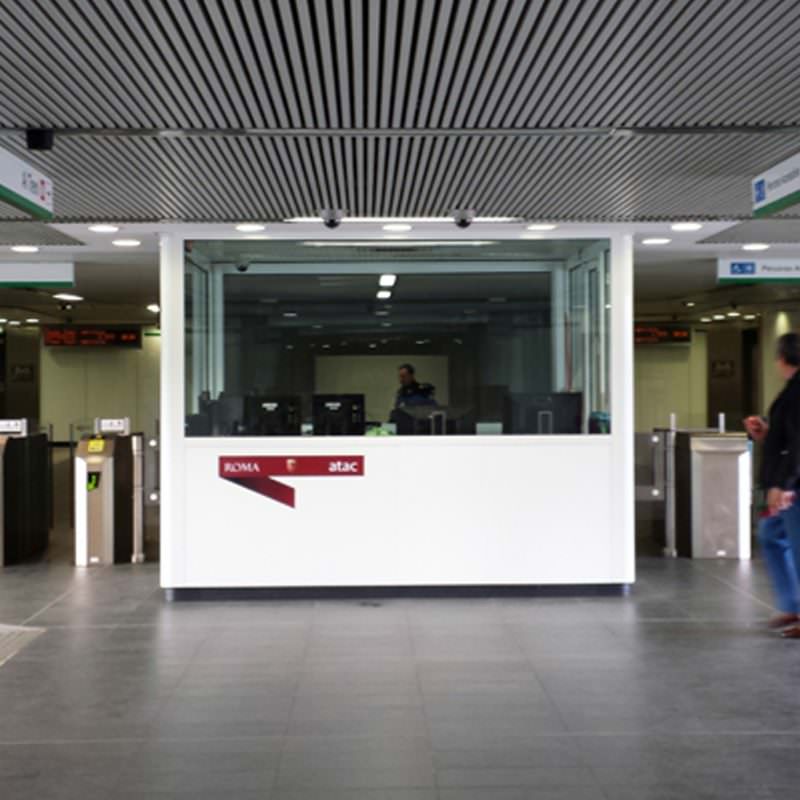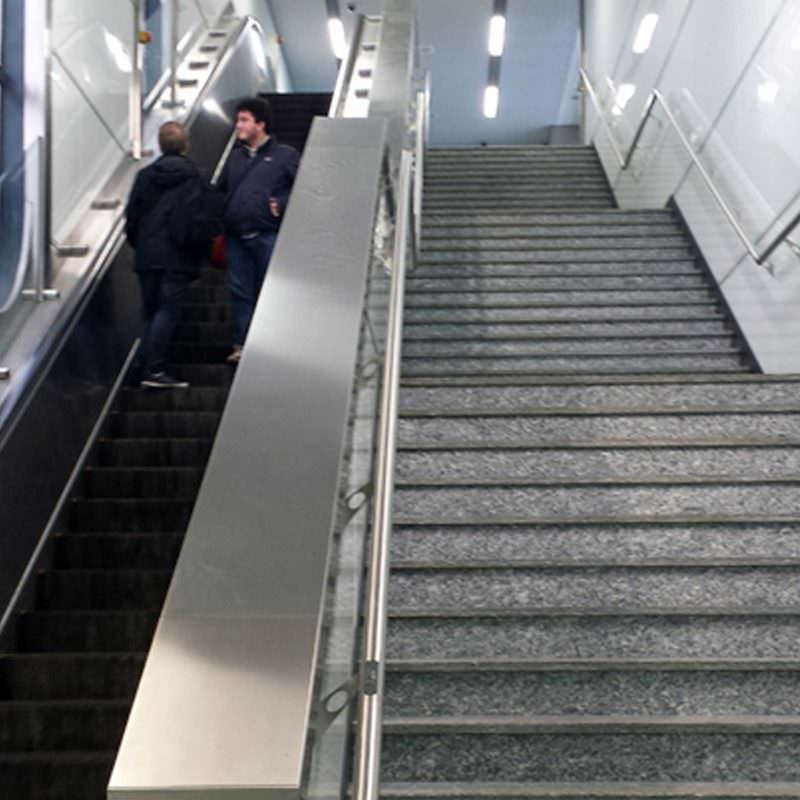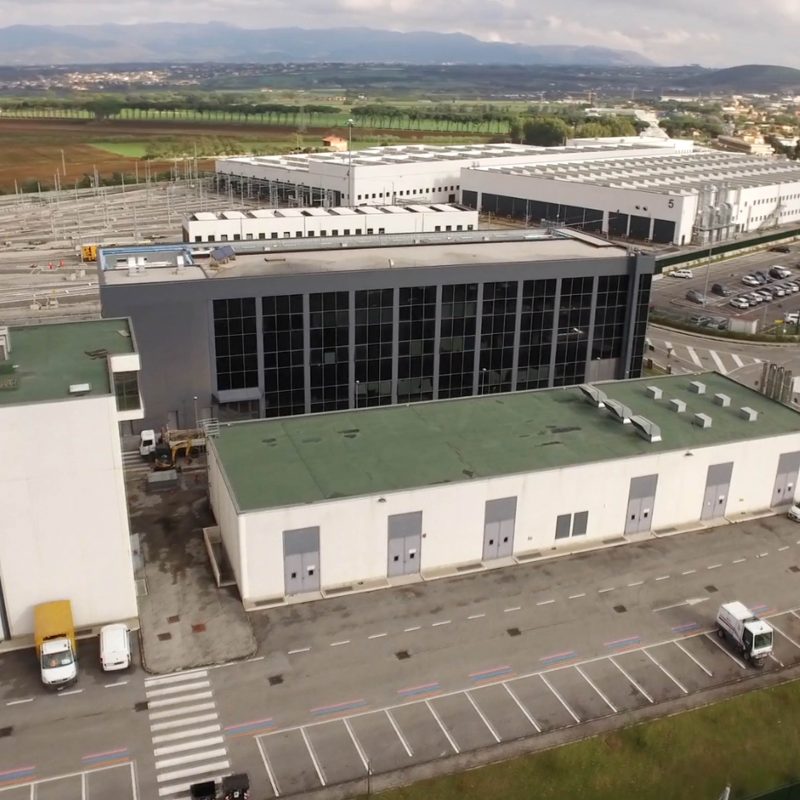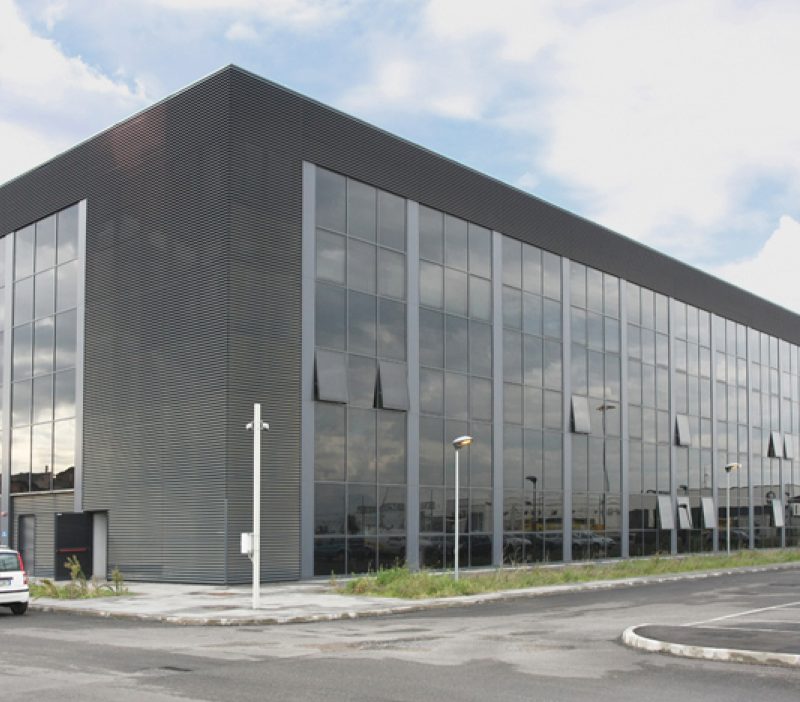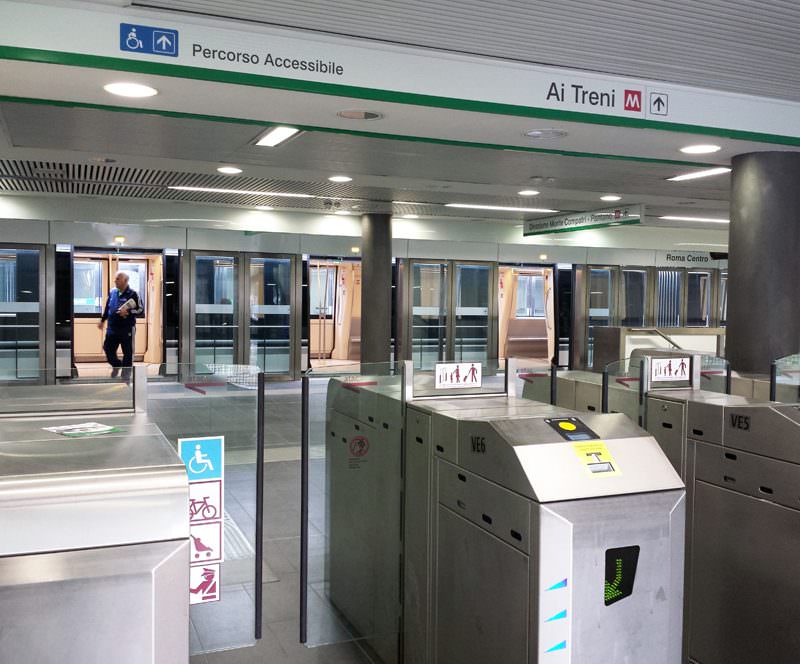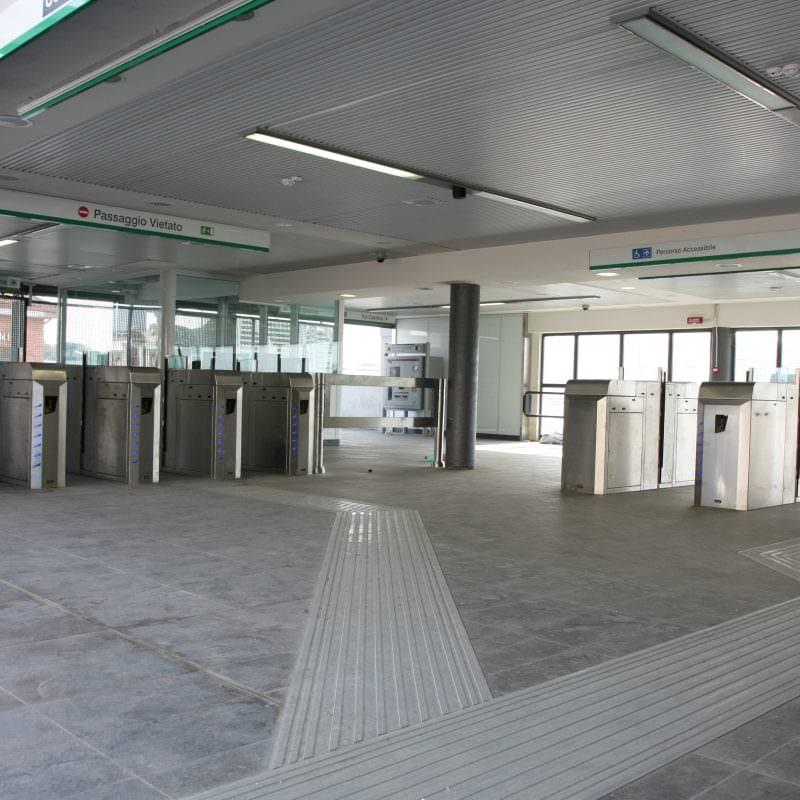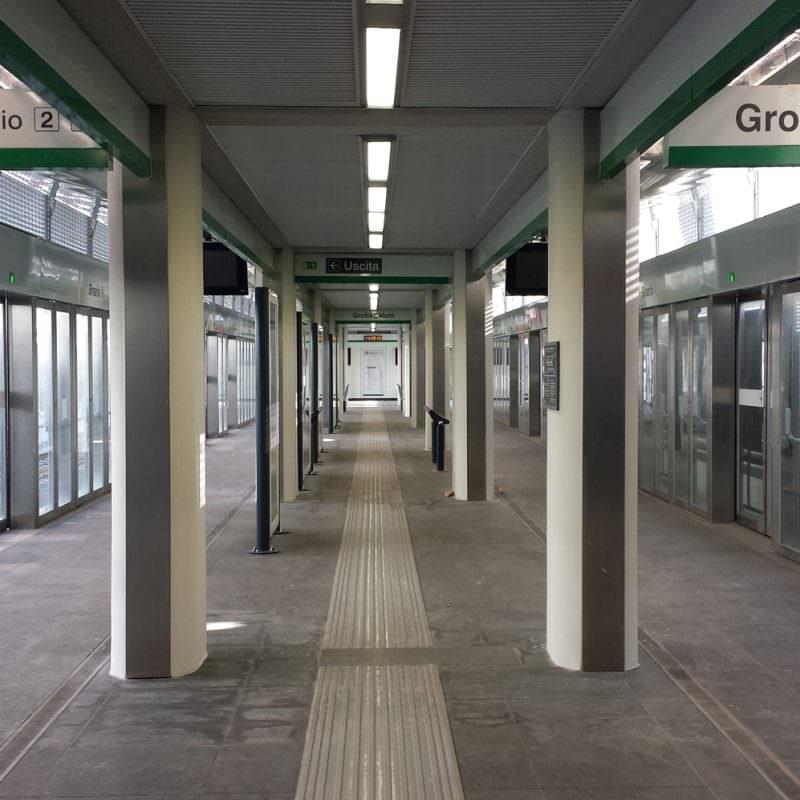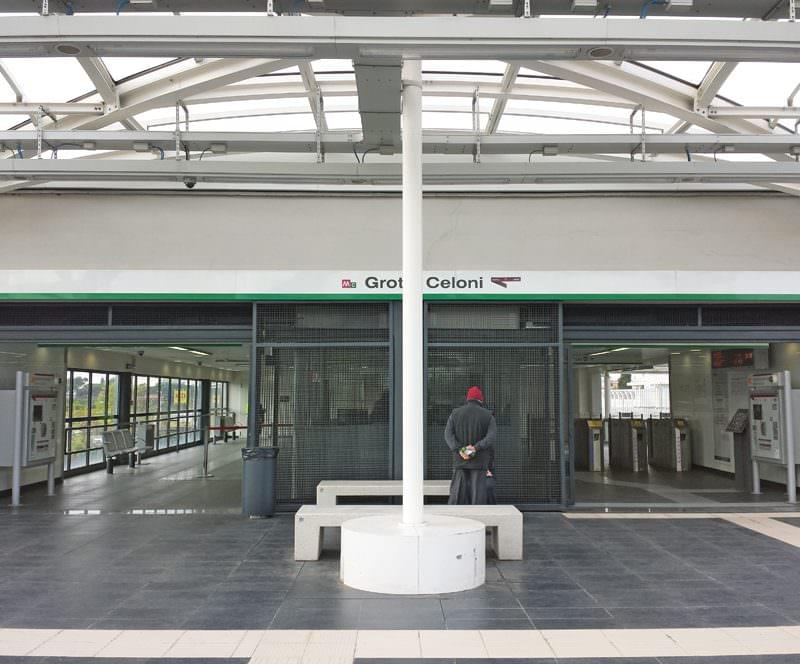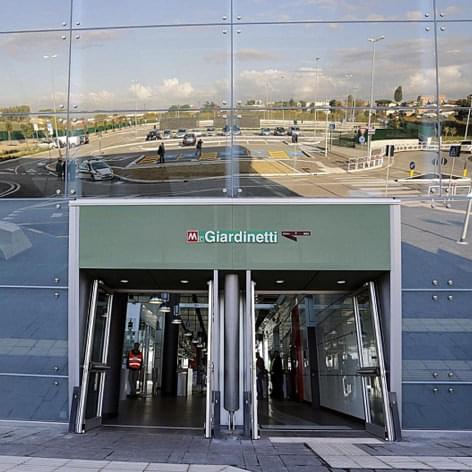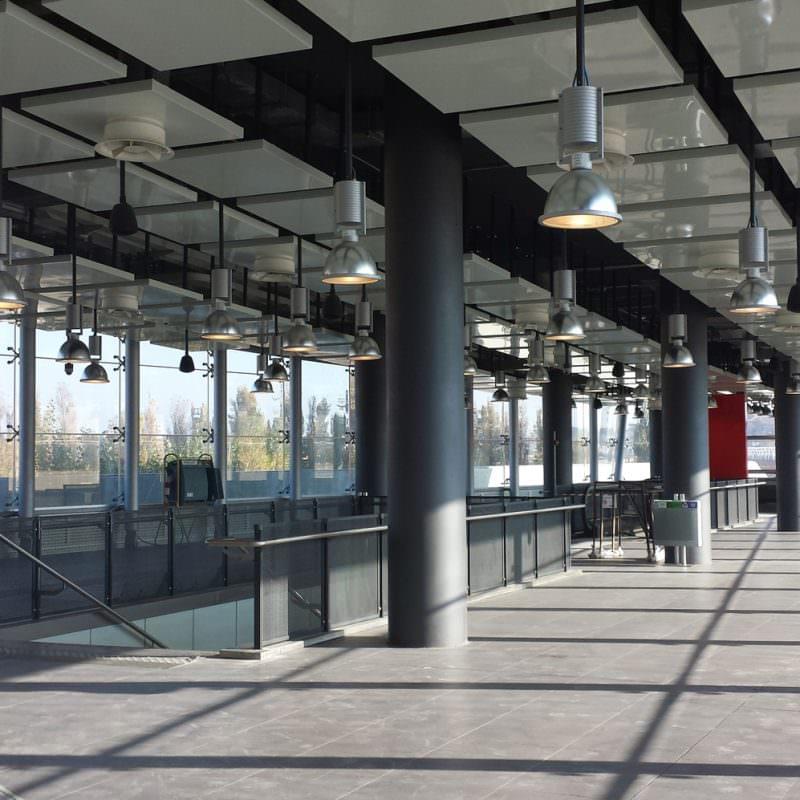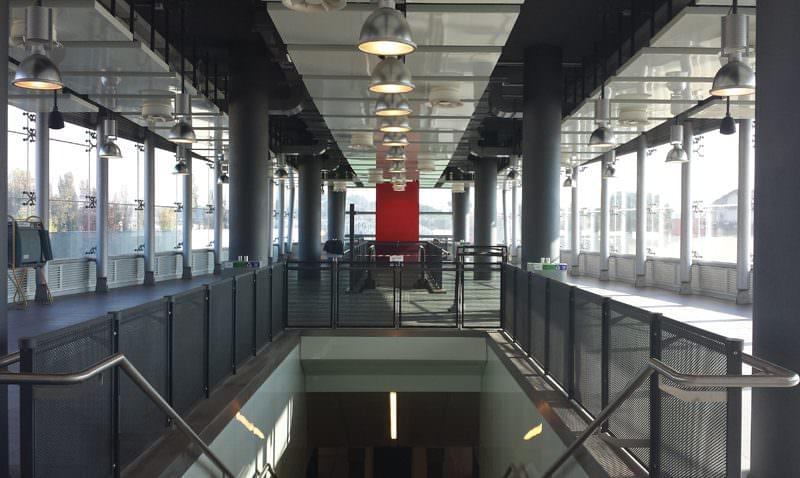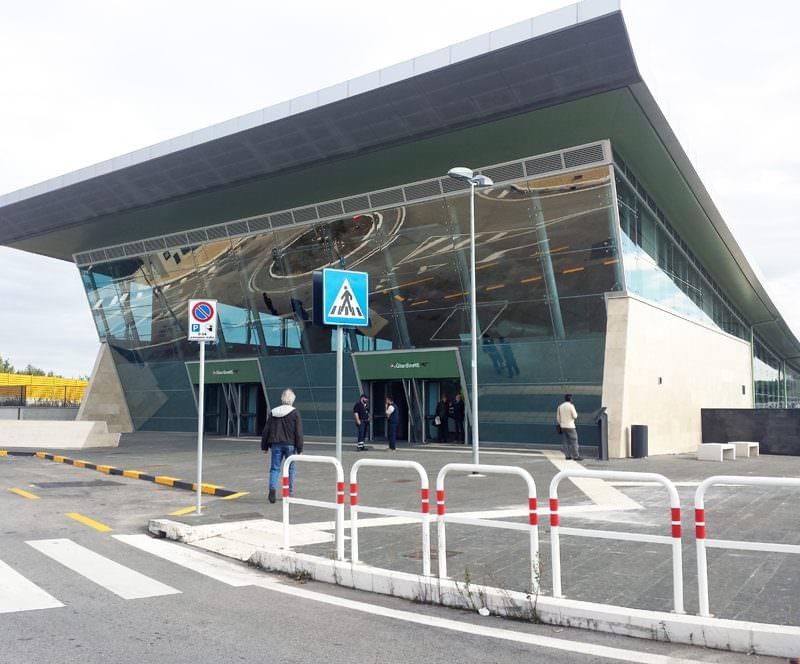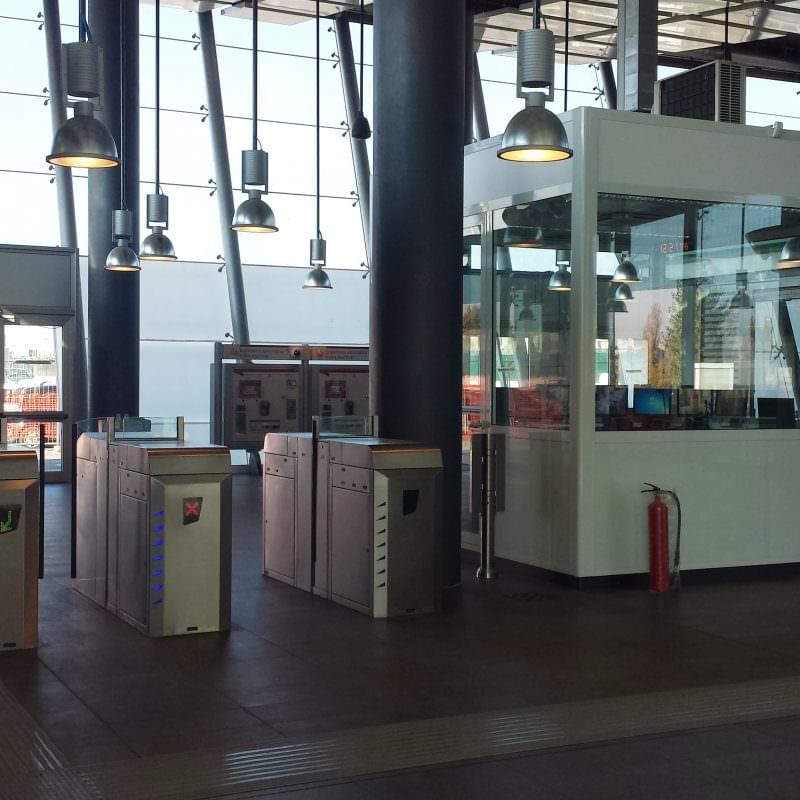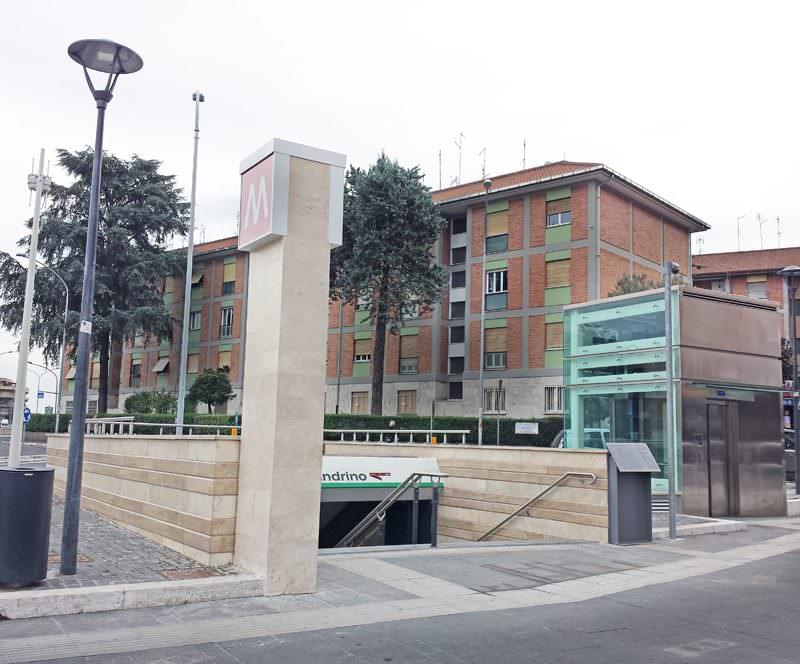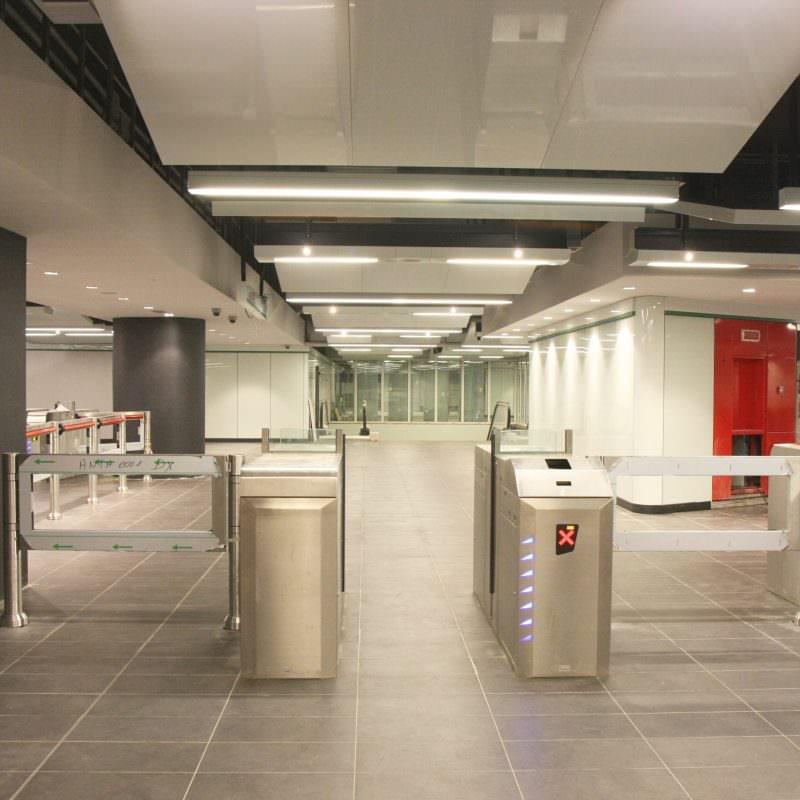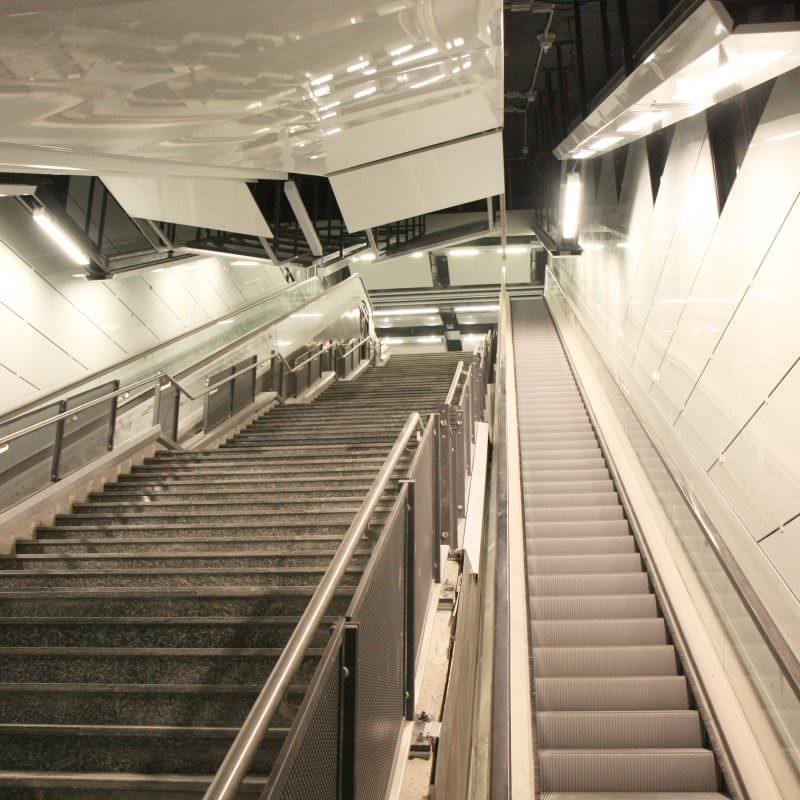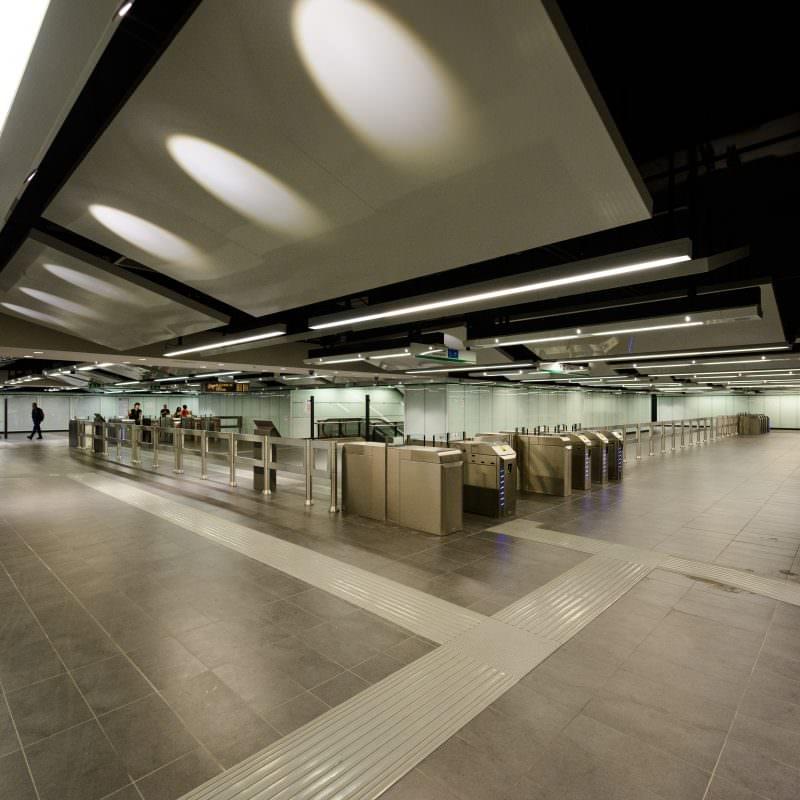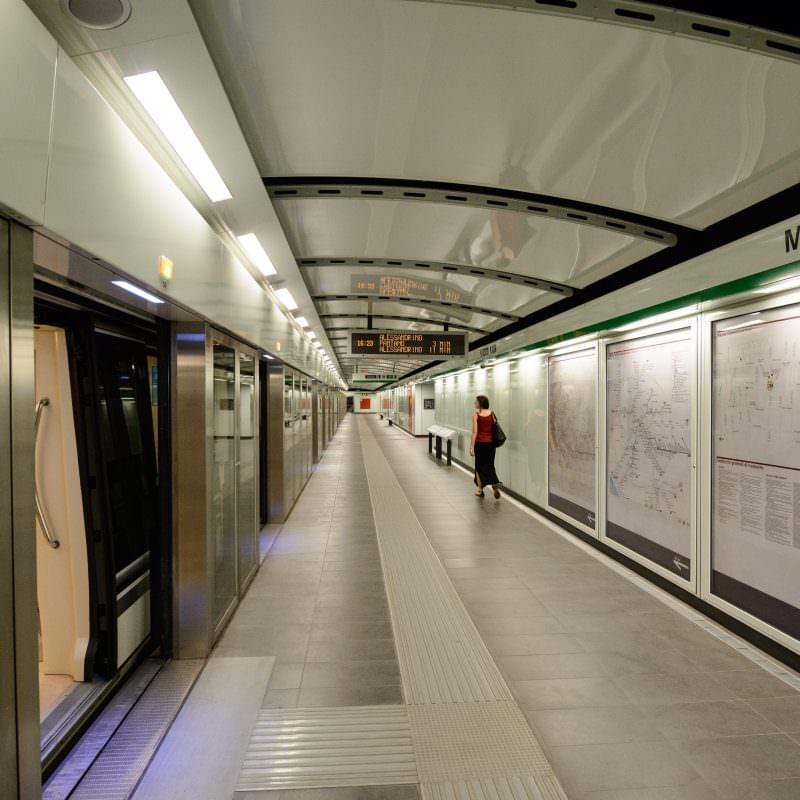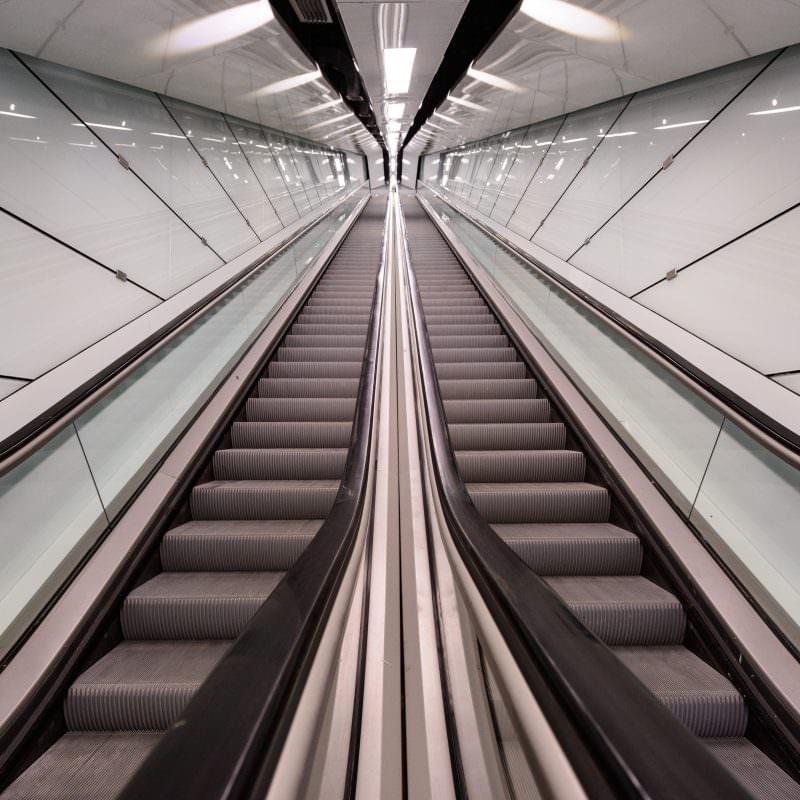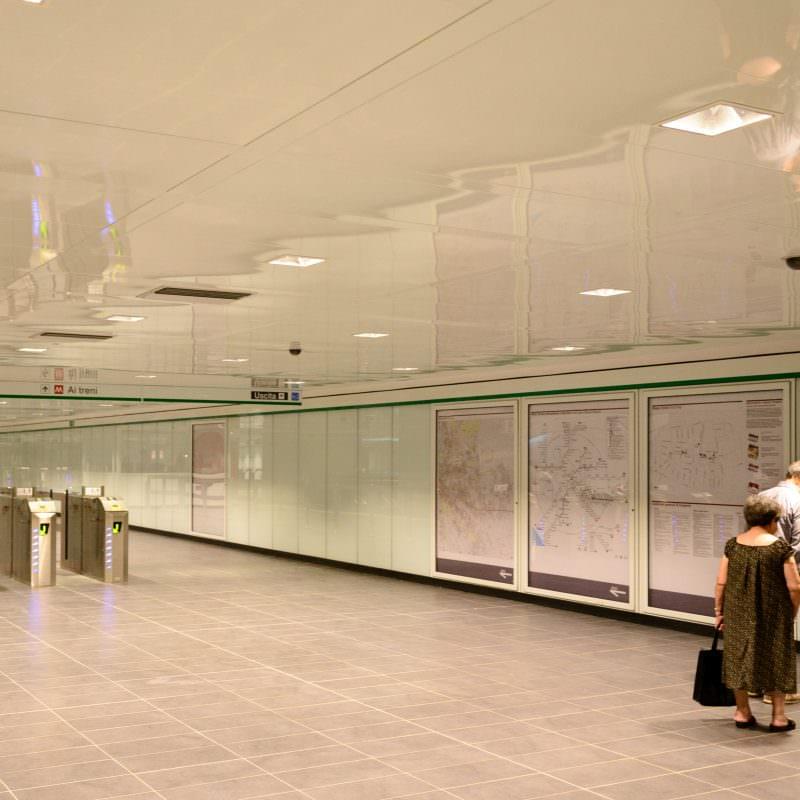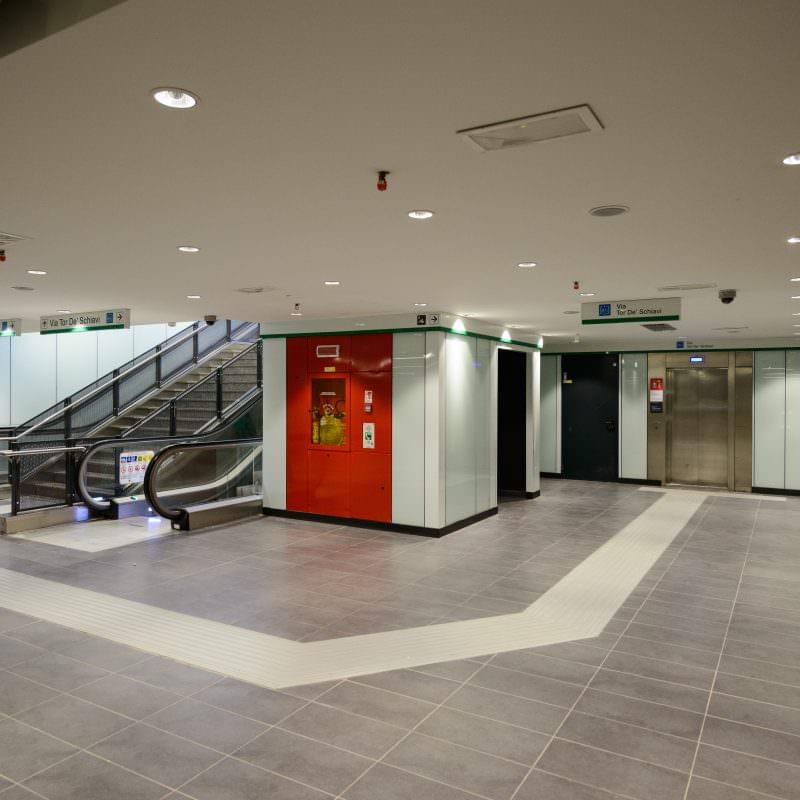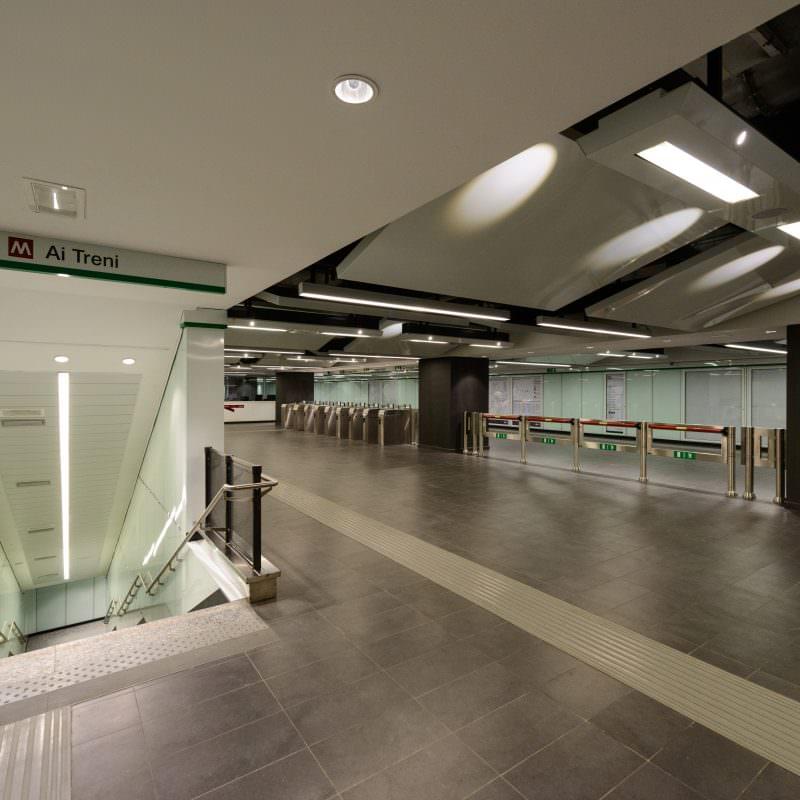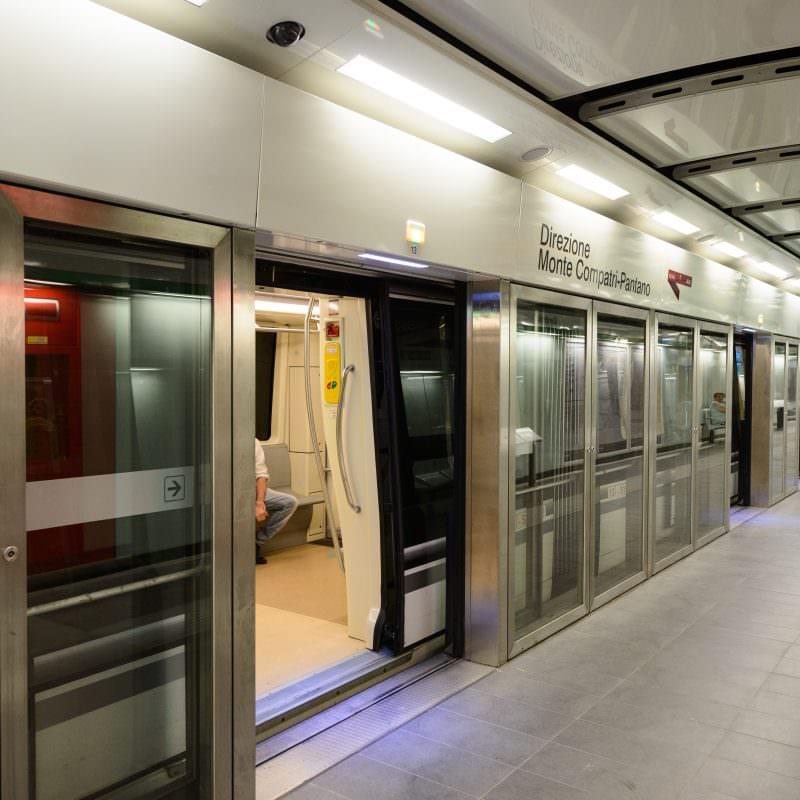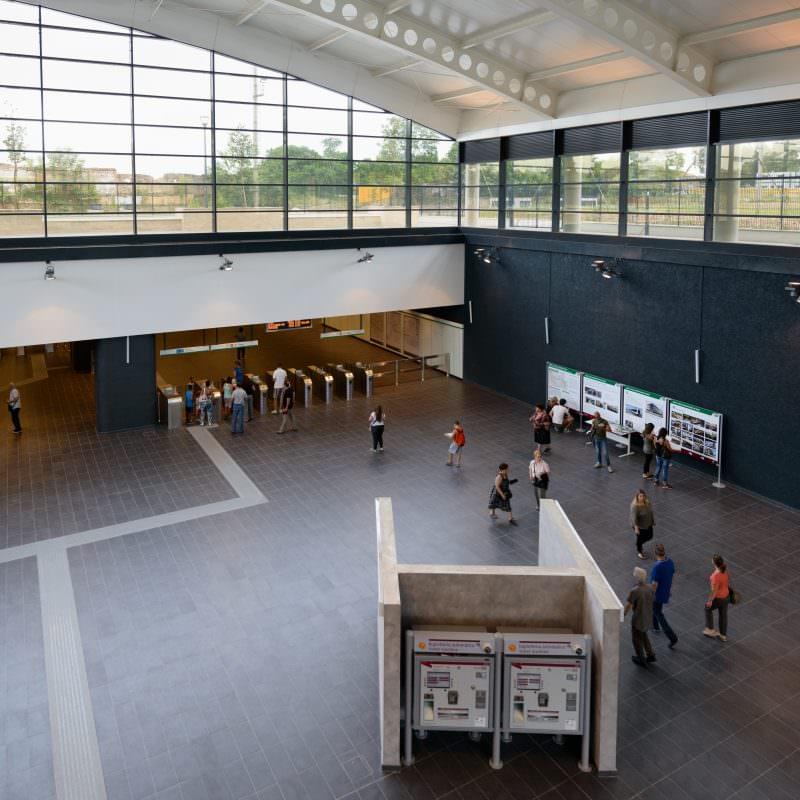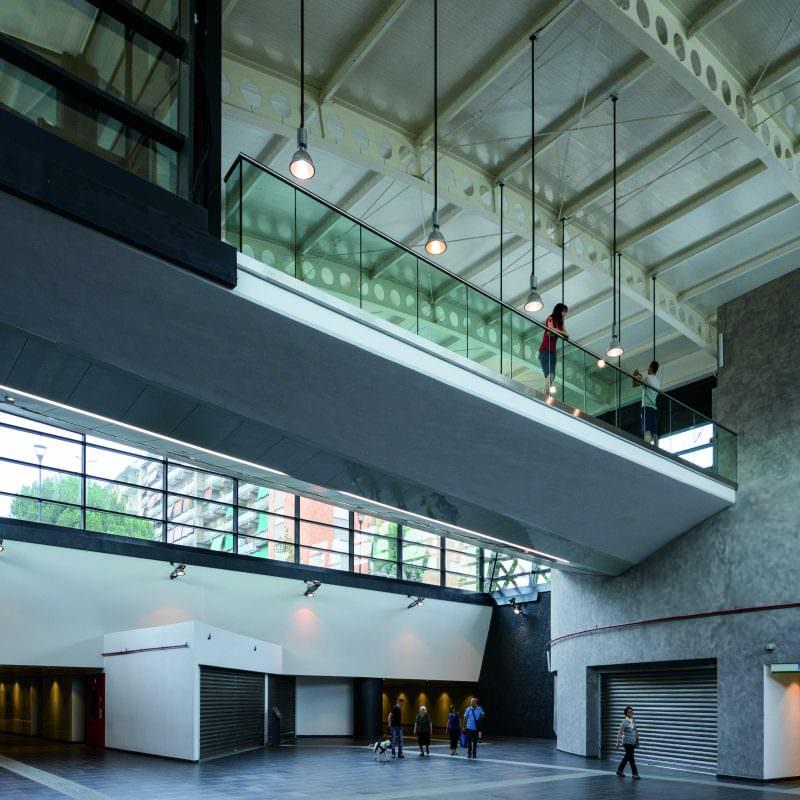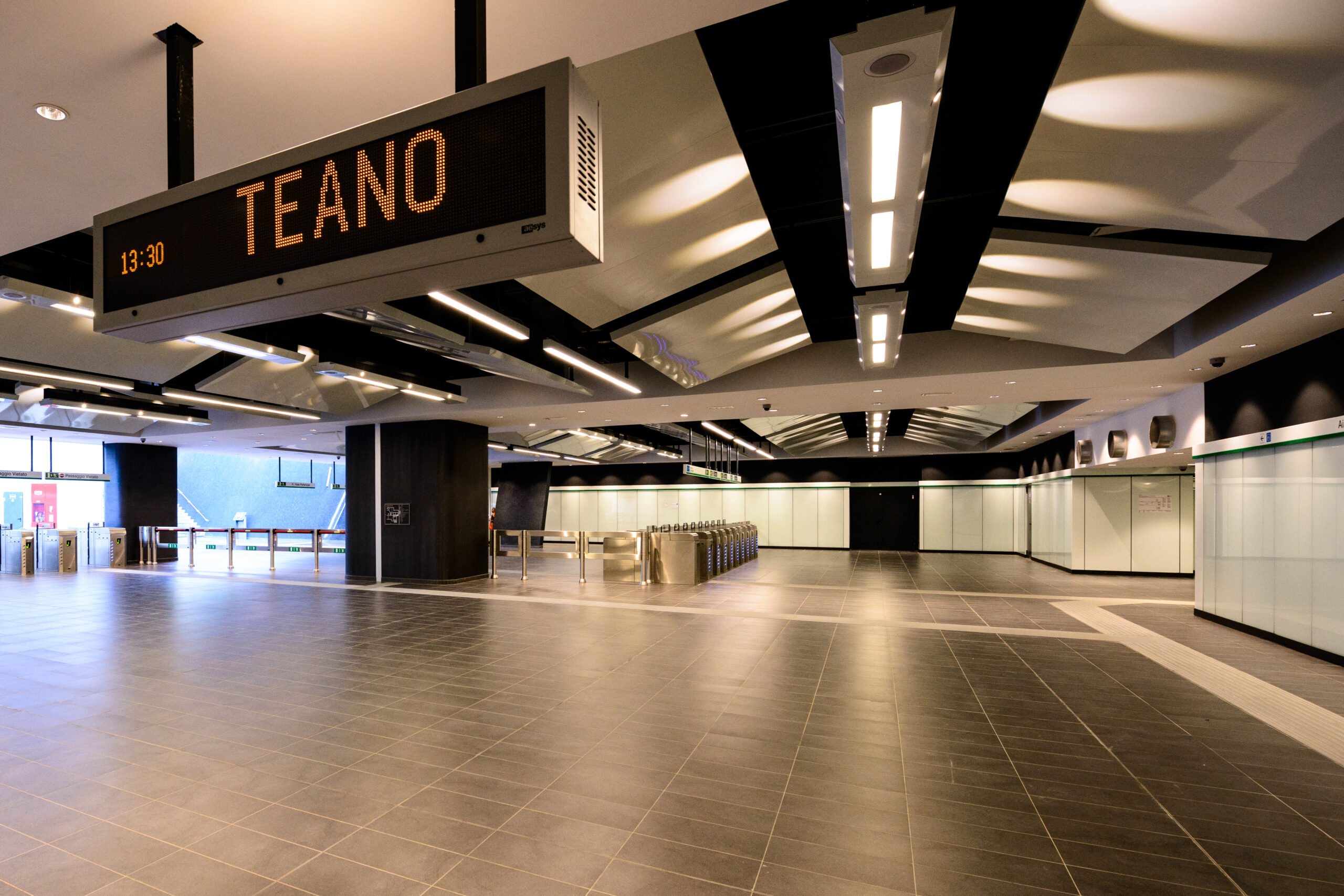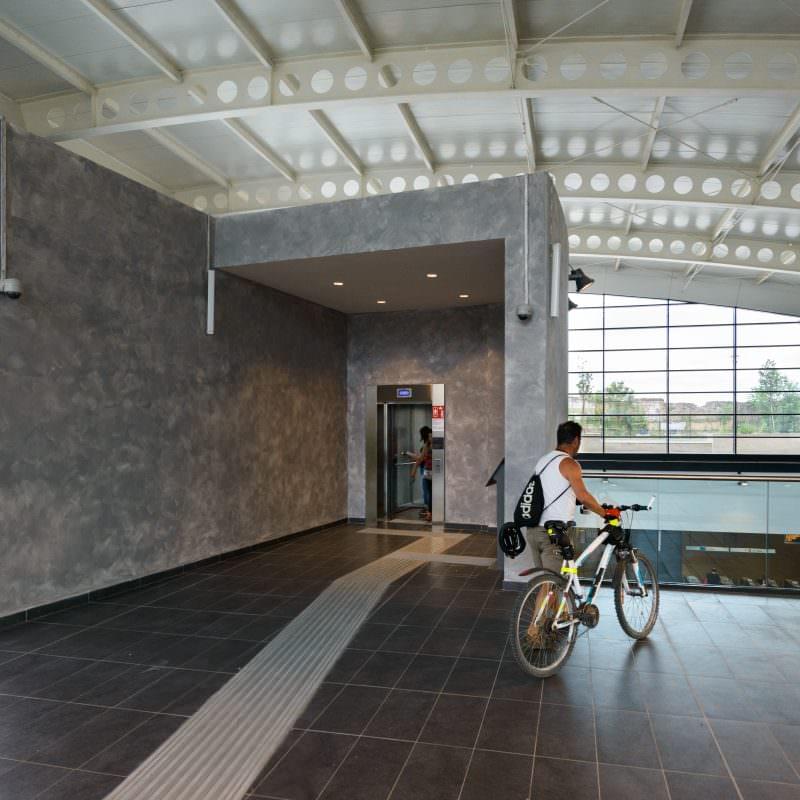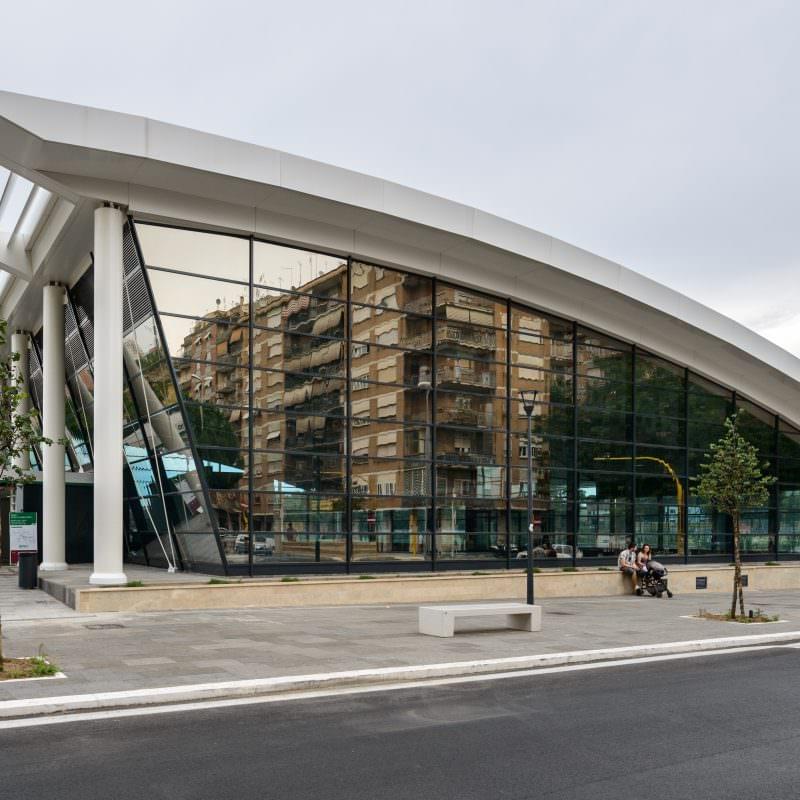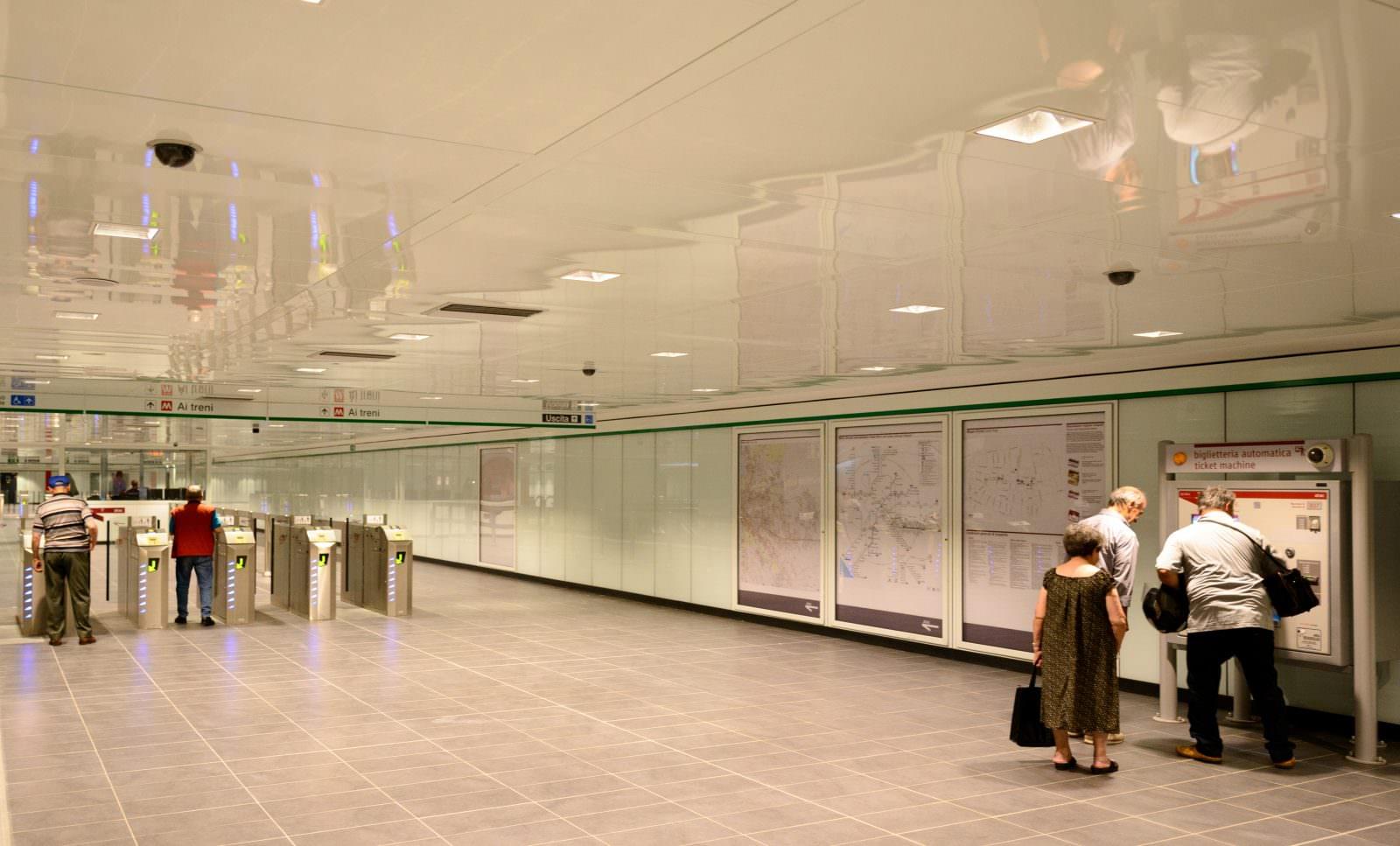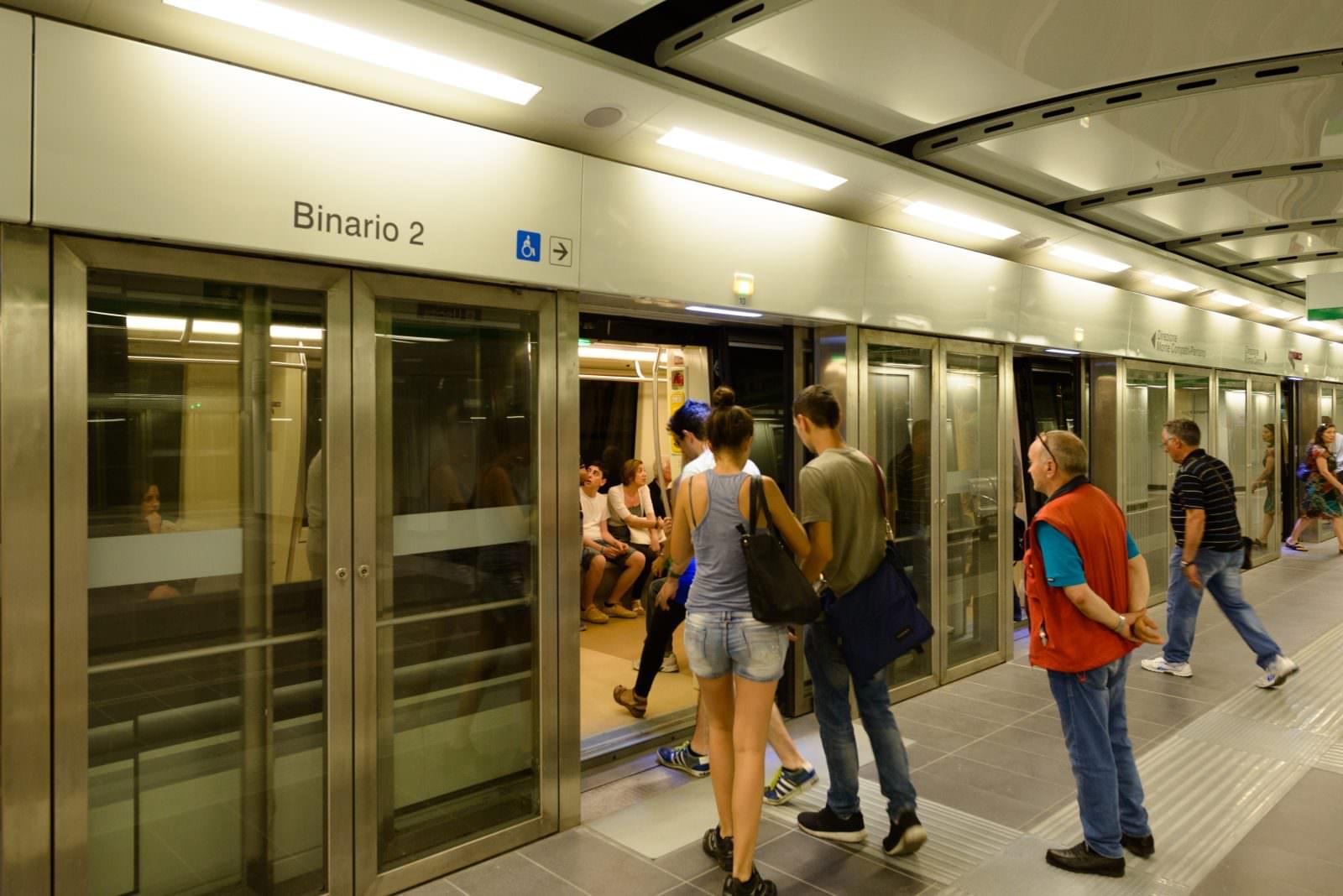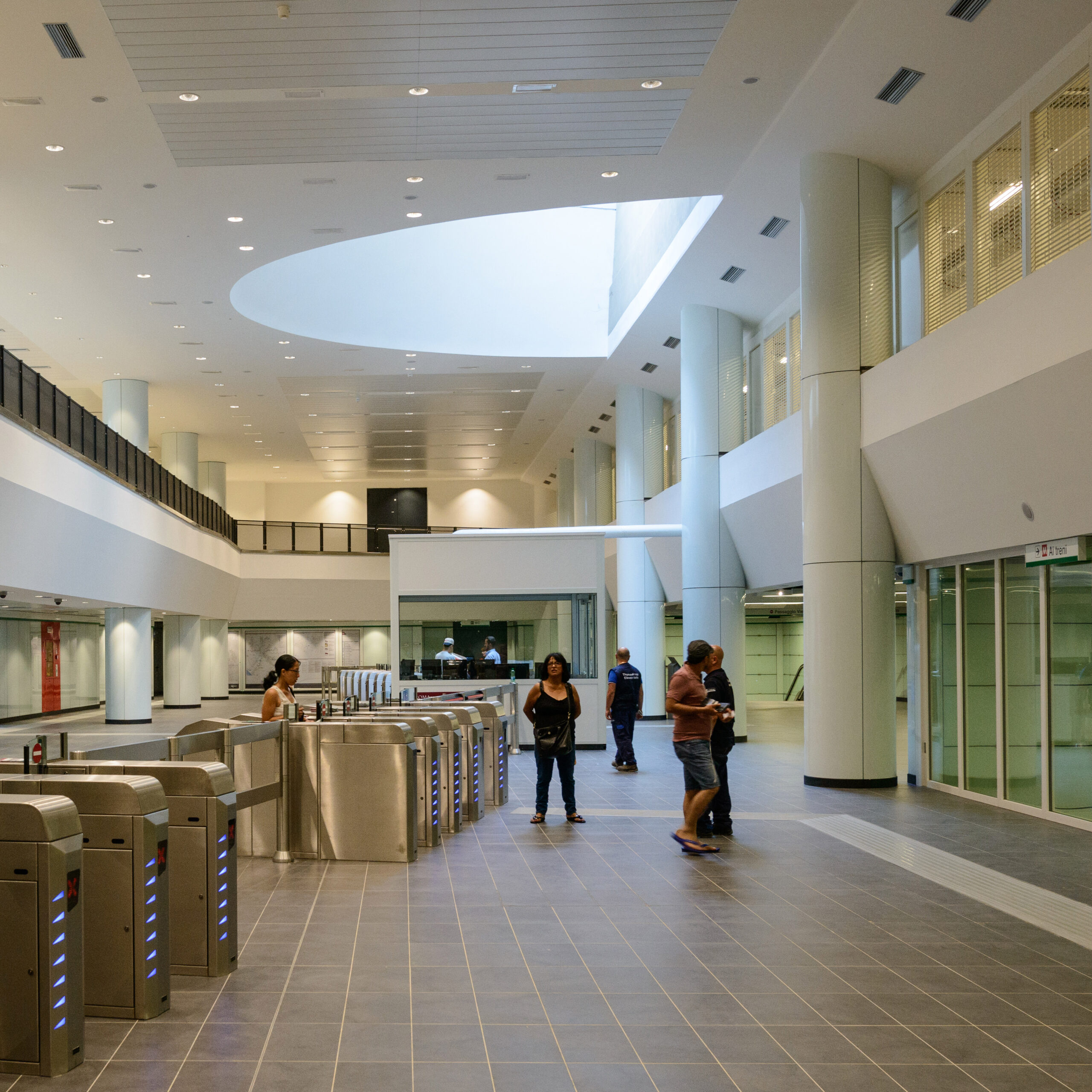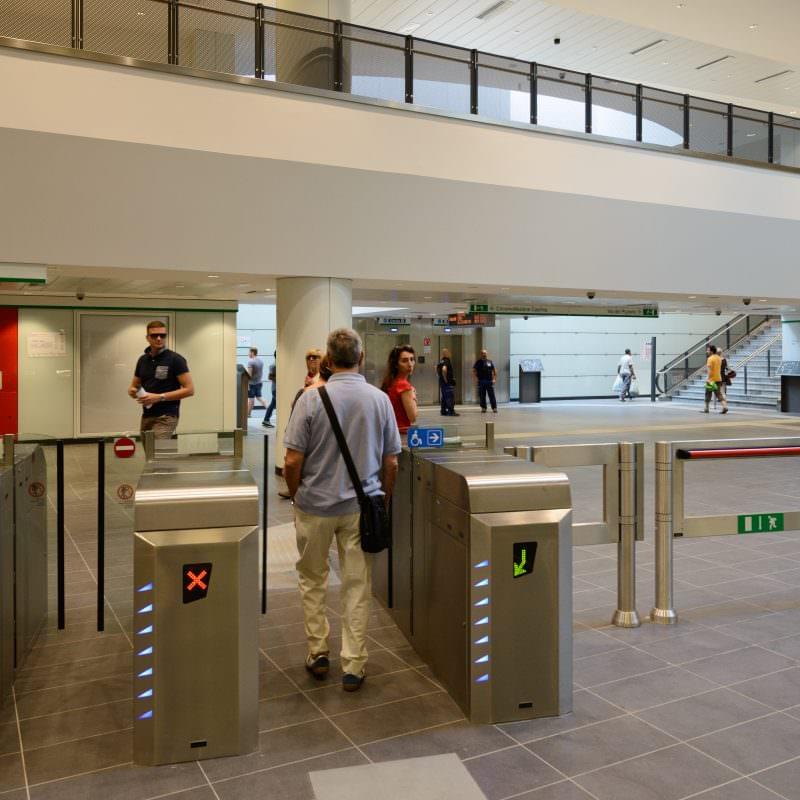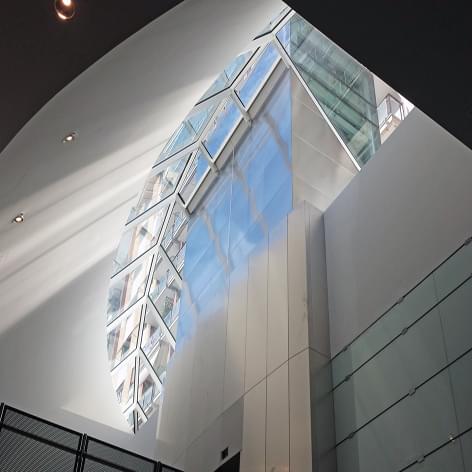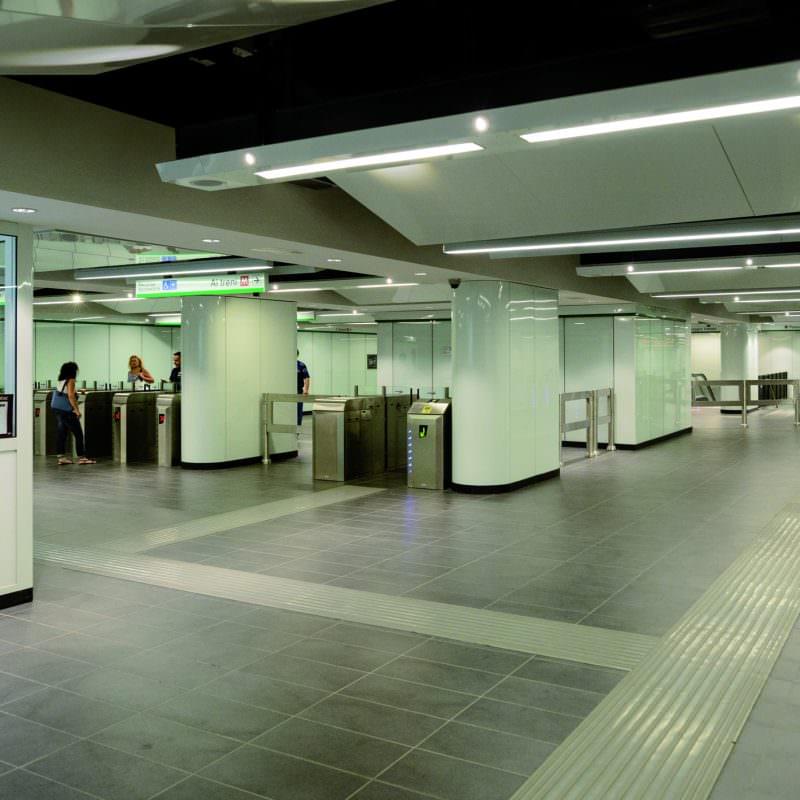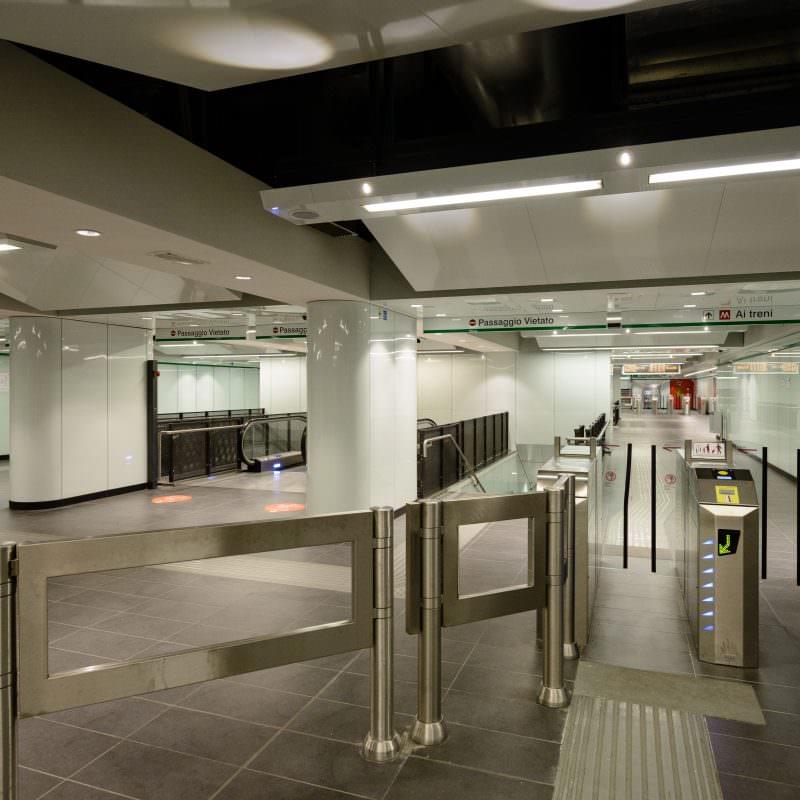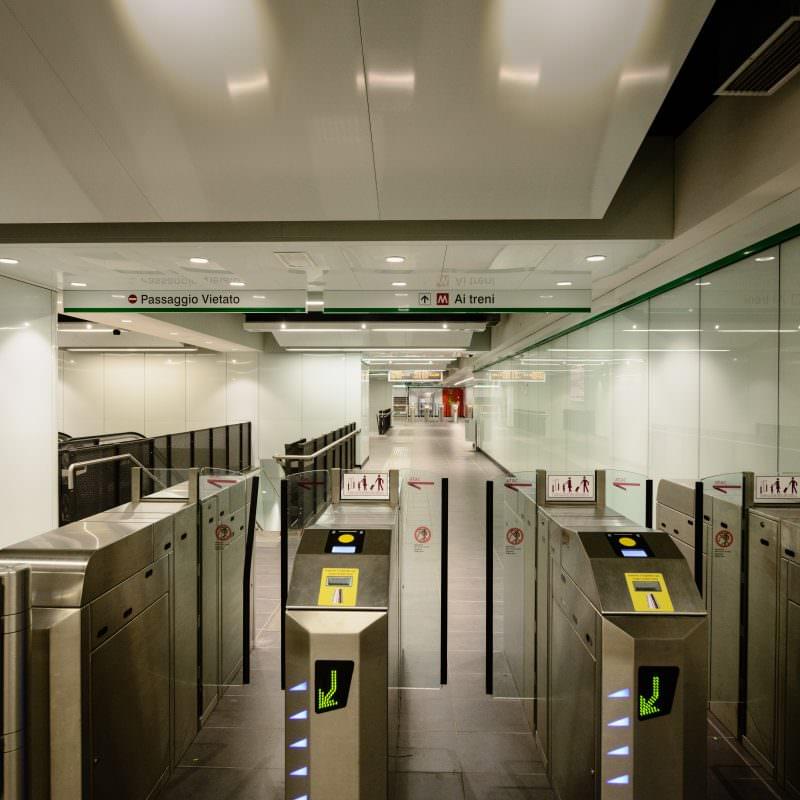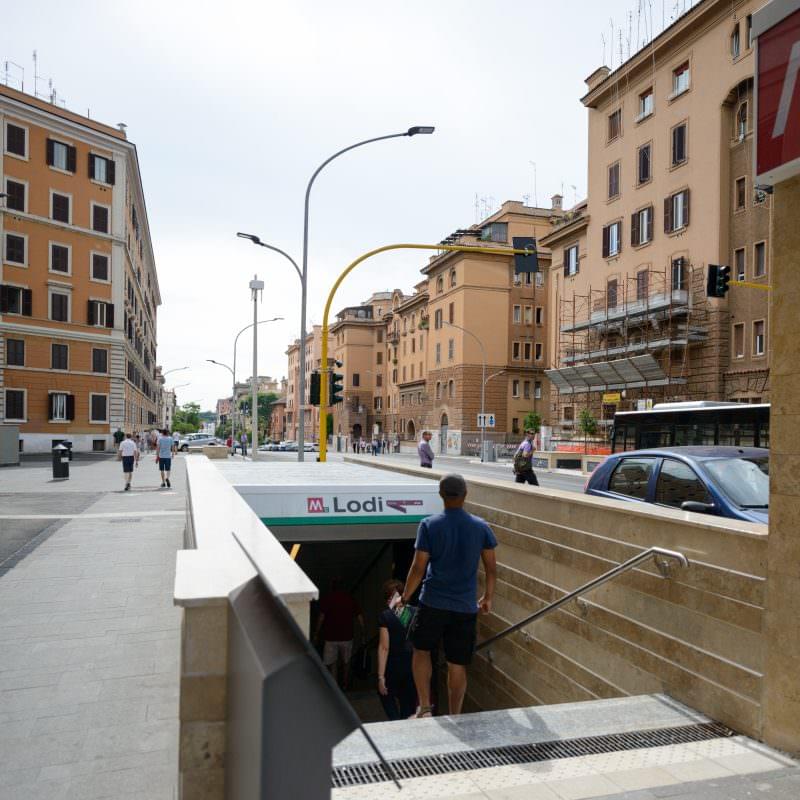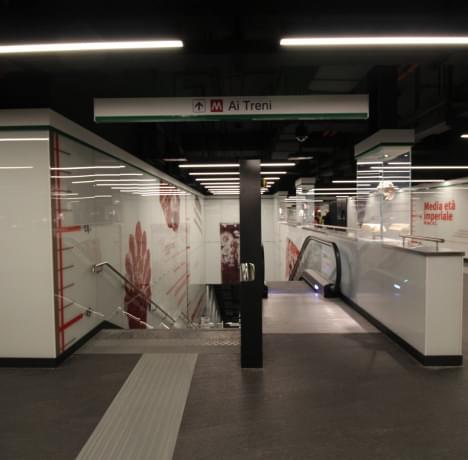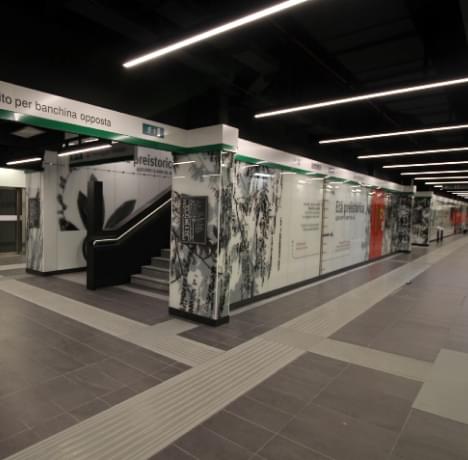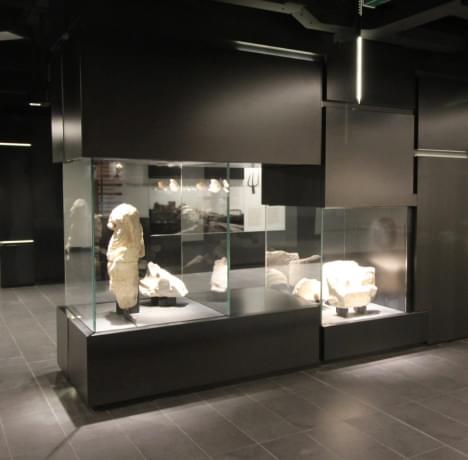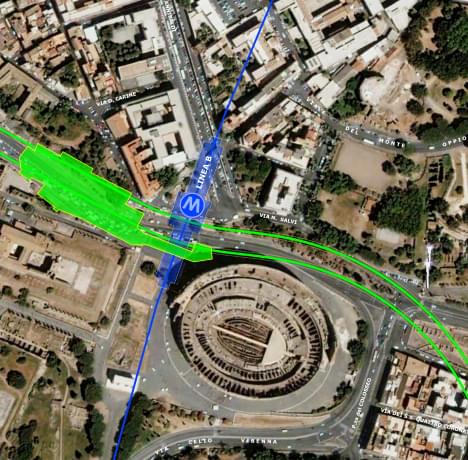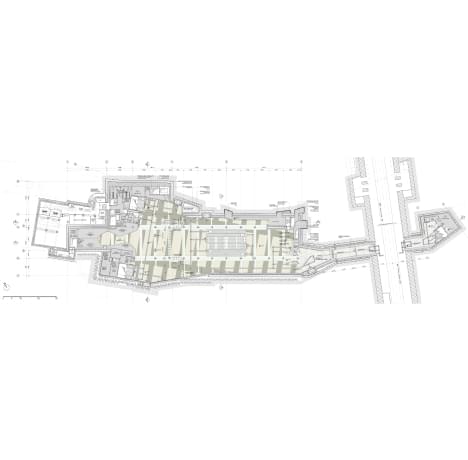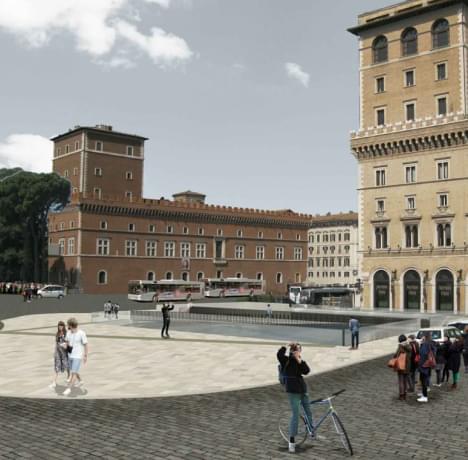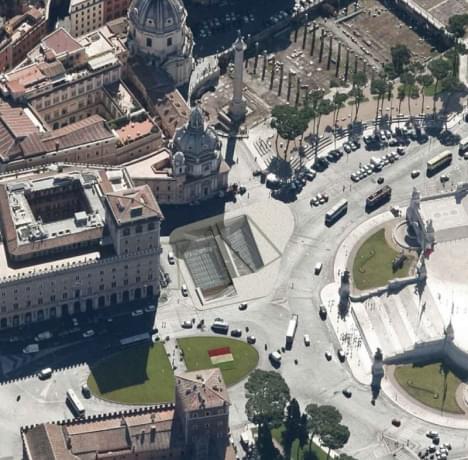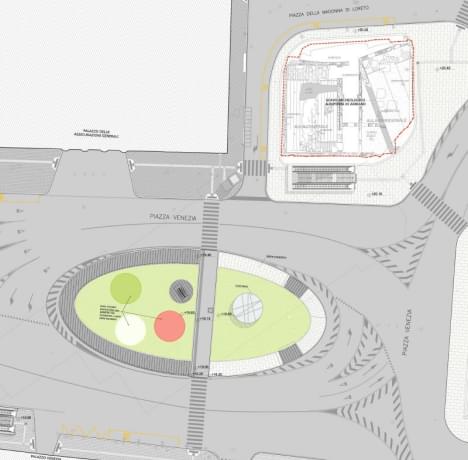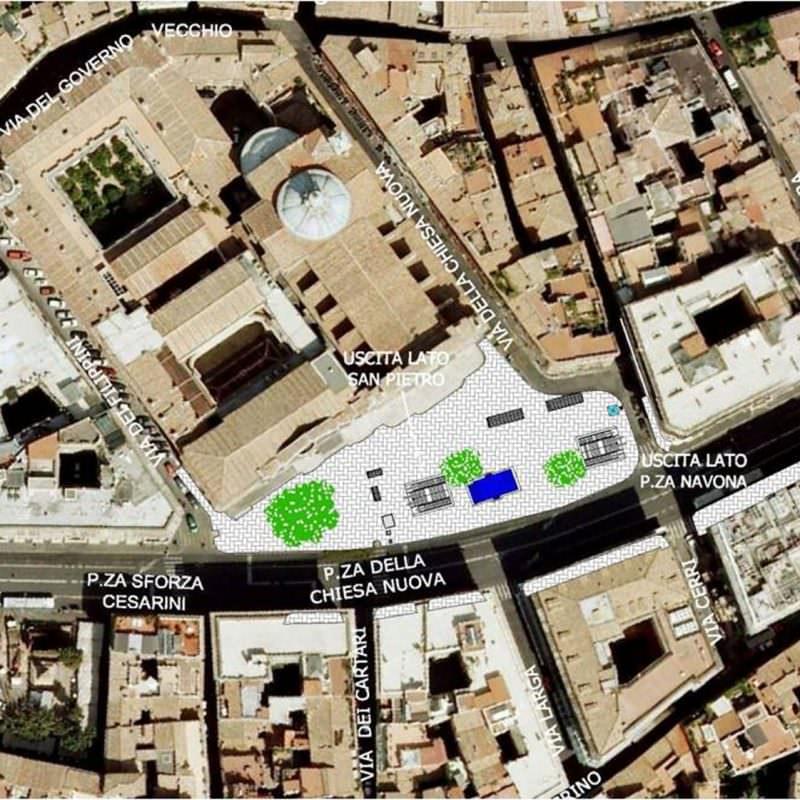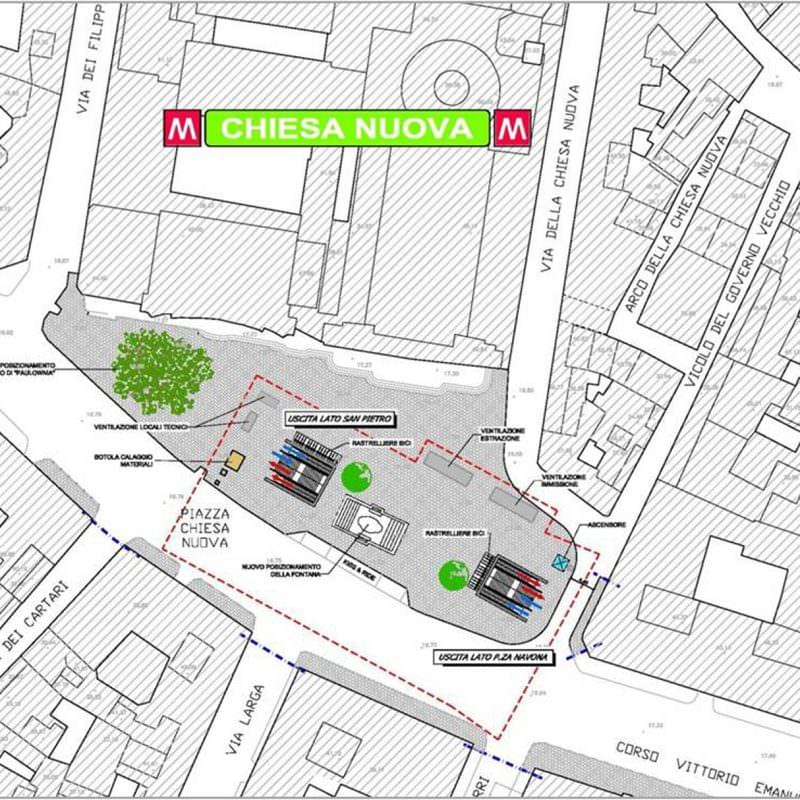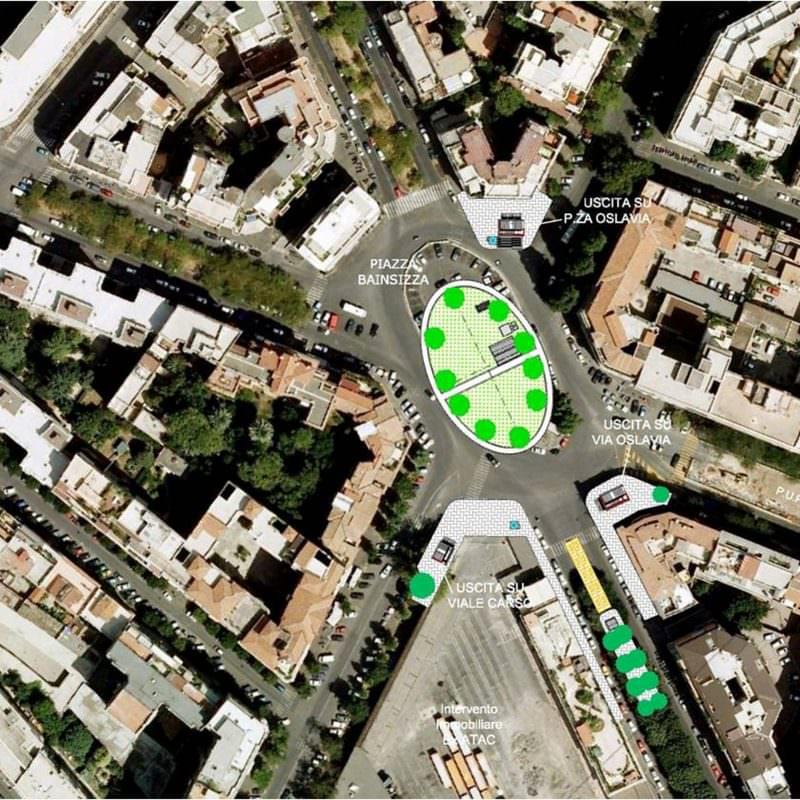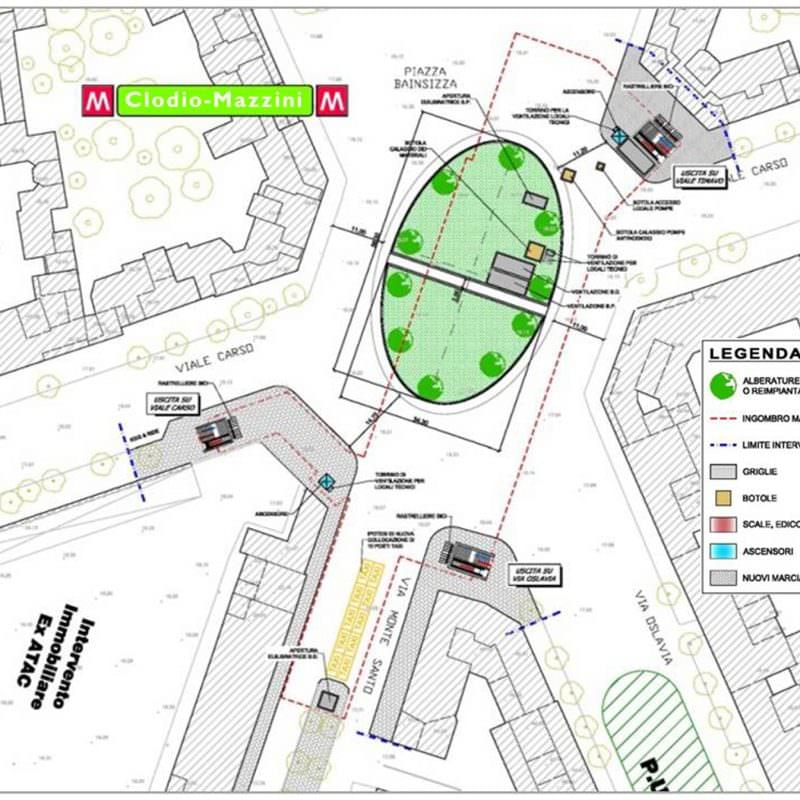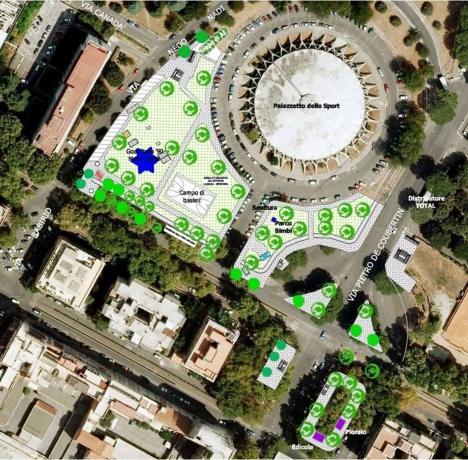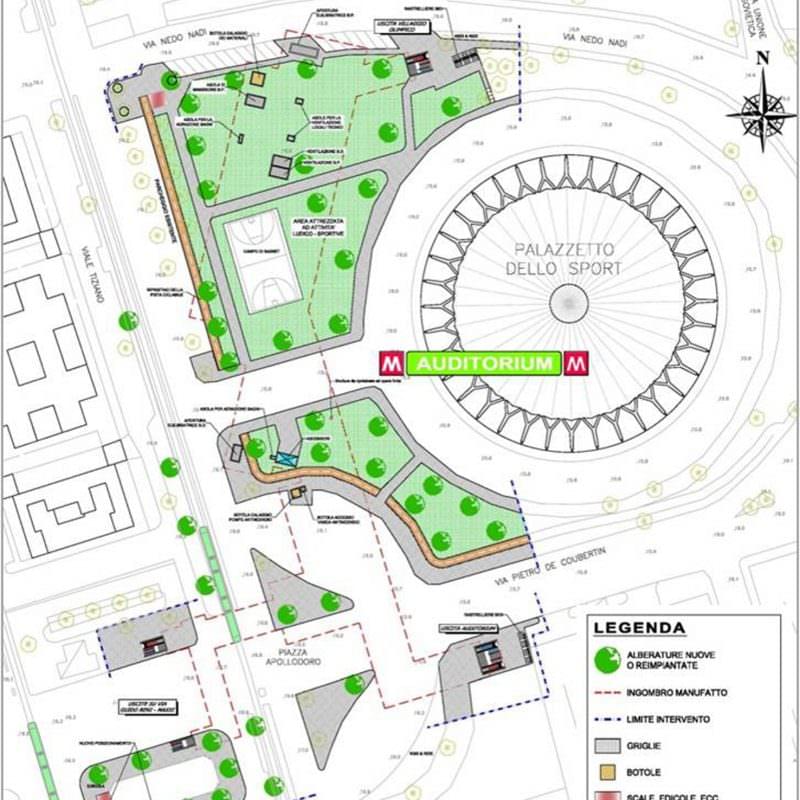The project
The infrastructure that connects past and future
An infrastructure to power Rome’s development. A project that looks to tomorrow and respects the past: it is the city’s first driverless subway, as well as the first where the stations become real museums.
The Rome Metro – Line C is a great engineering challenge and is a work where history builds the future.
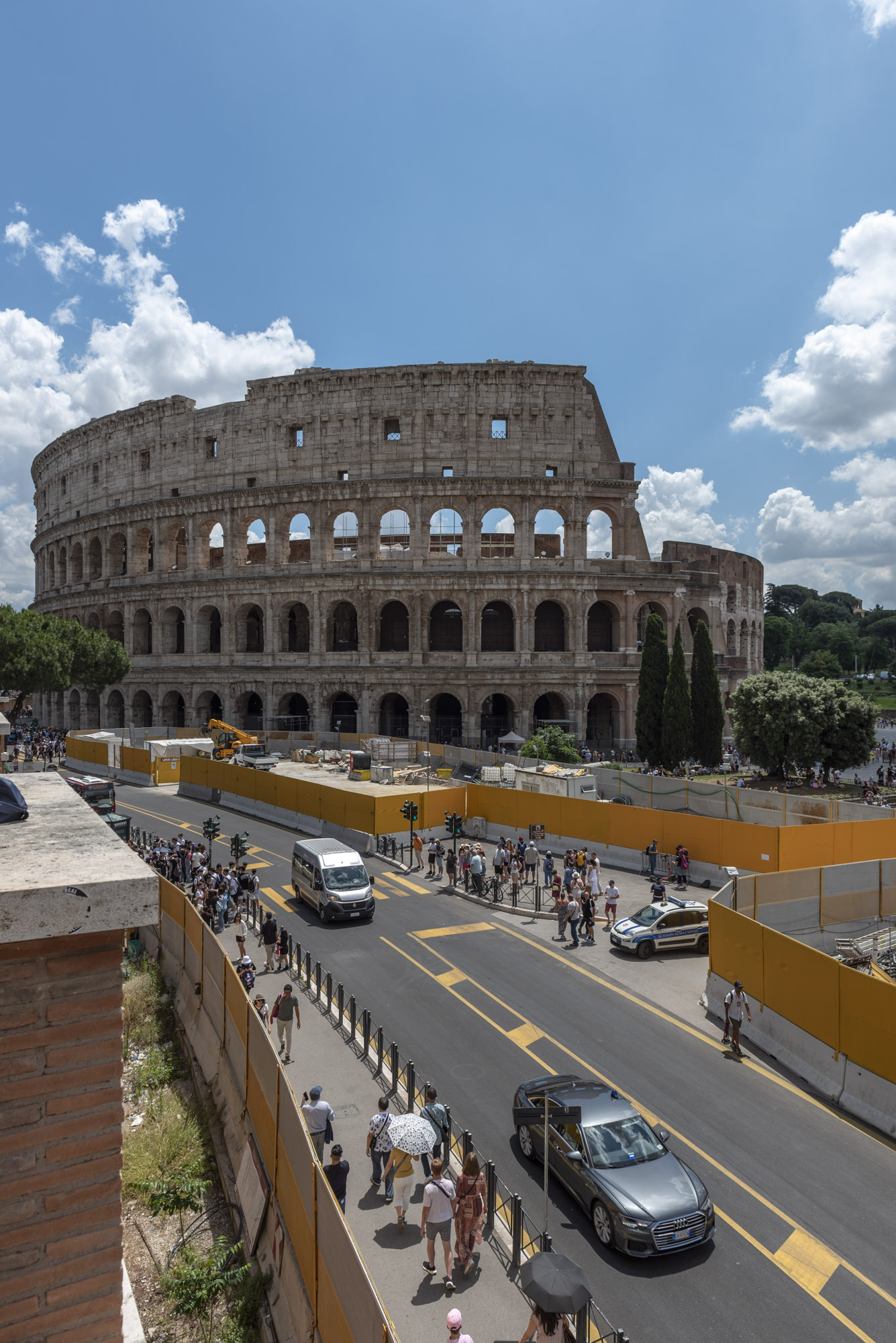
The Line C route
Suburbs and city centre are getting closer
Along the 26 km of the Metro C line from Monte Compatri Pantano to Clodio Mazzini, up to 800,000 people per day can travel, from the suburbs to the heart of the city. The route already in operation runs from the Monte Compatri/Pantano terminus to the San Giovanni station in the heart of the capital, covering a total of 22 stations along 19 km of line. After Clodio Mazzini, two more stations have been funded to run to Farnesina.
Discover the evolution of Line C and all its stations.

DESIGN IN PROGRESS THE FUTURE OF THE LINE
FUTURE DEVELOPMENTS
The Line C under construction includes 3 stations: Porta Metronia, Colosseo – Fori Imperiali, and Venezia. These stations will enter the heart of Rome and will allow the enjoyment of the artifacts found in the excavations thanks to the planned museum setups. The Colosseo station will also be the junction between Line C and the already operational Line B of the Rome metro, expanding the network effect of the capital’s mobility.
The Line C currently in operation connects the southeastern suburbs to the San Giovanni station, a transfer point with Line A and the first example in Rome of a museum station. The route continues through 22 stations.
DESIGN IN PROGRESS
The Venezia – Clodio/Mazzini route will run through stations Chiesa Nuova, San Pietro, Ottaviano, which is the second interchange node of Line C with Line A, and Clodio/Mazzini.
FUTURE DEVELOPMENTS
As a possible opportunity to extend Line C, the Farnesina – Clodio/Mazzini route is in the preliminary design phase by the Client. The project under study includes the construction of two stations: Auditorium and Farnesina. The first will be located near the Auditorium Parco della Musica and the Palazzetto dello Sport; the second will allow a quicker connection to important places for the city such as the Foro Italico, the Olympic Stadium, as well as the Ministry of Foreign Affairs and the Institutes of Public Administration.
Monte Compatri/Pantano
22 Stations in operation
The Monte Compatri/Pantano Station, the eastern terminus of the line, represents a significant rubber-steel interchange hub, thanks to two large parking areas, one of which is a multi-level parking and the other is at ground level, allowing for the parking of private vehicles.
Graniti
22 Stations in operation
The 10 pre-existing stations of the Termini-Pantano railway have been modernized according to the technological and architectural standards of the new Line, adapting their functional and plant characteristics. The Graniti Station has been open to the public since November 9, 2014.
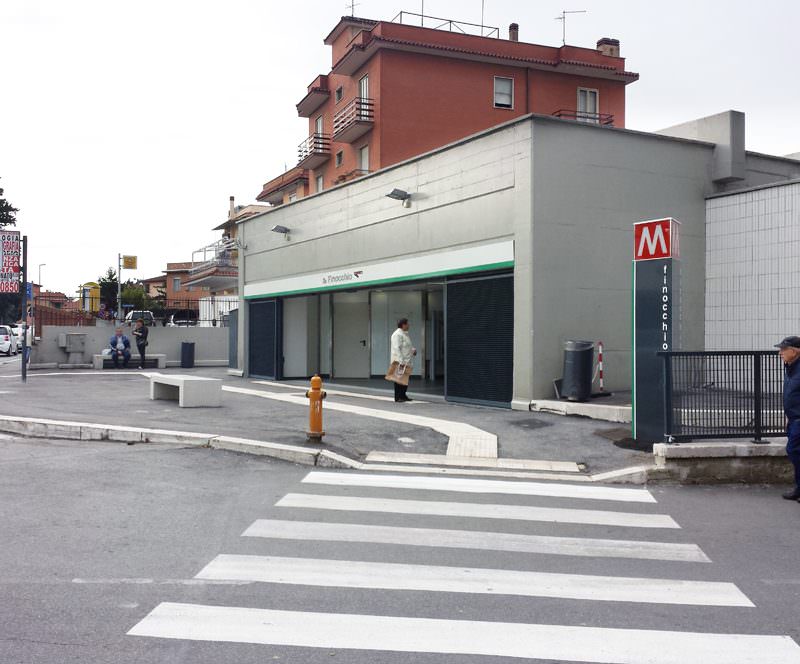
Finocchio
22 Stations in operation
"The 10 pre-existing stations of the Termini-Pantano railway have been modernized according to the technological and architectural standards of the new Line, adapting their functional and plant characteristics. The Finocchio Station has been open to the public since November 9, 2014.
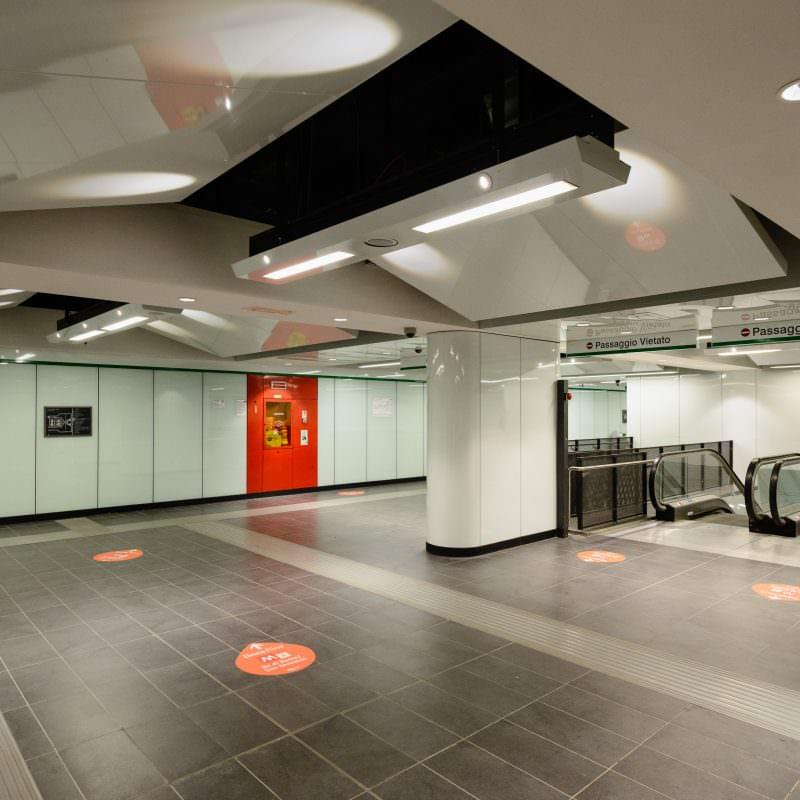
Bolognetta
22 Stations in operation
The 10 pre-existing stations of the Termini-Pantano railway have been modernized according to the technological and architectural standards of the new Line, adapting their functional and plant characteristics. The Bolognetta Station has been open to the public since November 9, 2014.
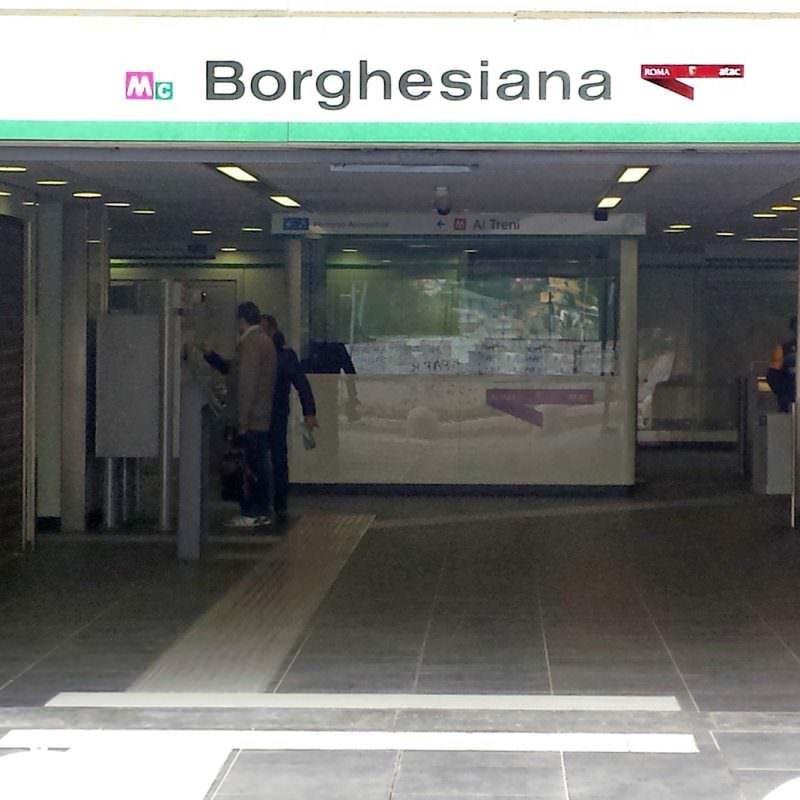
Borghesiana
22 Stations in operation
The 10 pre-existing stations of the Termini-Pantano railway have been modernized according to the technological and architectural standards of the new Line, adapting their functional and plant characteristics. The Borghesiana Station has been open to the public since November 9, 2014.
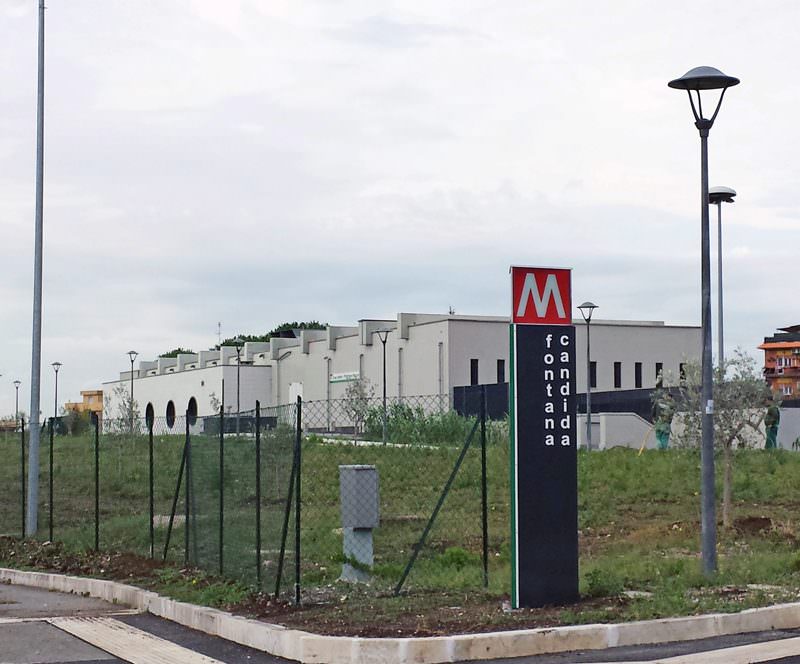
Due Leoni/Fontana Candida
22 Stations in operation
The 10 pre-existing stations of the Termini-Pantano railway have been modernized according to the technological and architectural standards of the new Line, adapting their functional and plant characteristics. The Due Leoni/Fontana Candida Station has been open to the public since November 9, 2014.
Grotte Celoni
22 Stations in operation
The 10 pre-existing stations of the Termini-Pantano railway have been modernized according to the technological and architectural standards of the new Line, adapting their functional and plant characteristics. The Grotte Celoni Station has been open to the public since November 9, 2014.
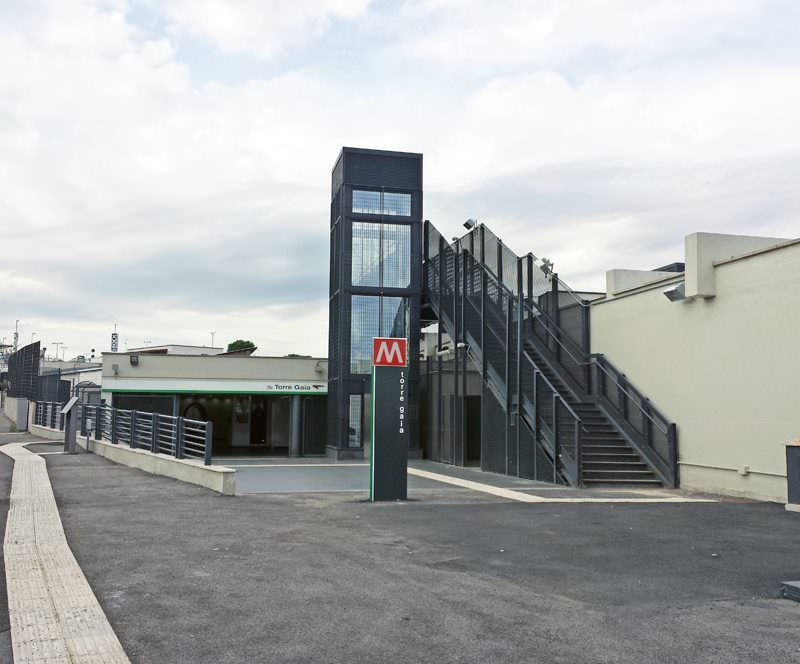
Torre Gaia
22 Stations in operation
The 10 pre-existing stations of the Termini-Pantano railway have been modernized according to the technological and architectural standards of the new Line, adapting their functional and plant characteristics. The Torre Gaia Station has been open to the public since November 9, 2014.
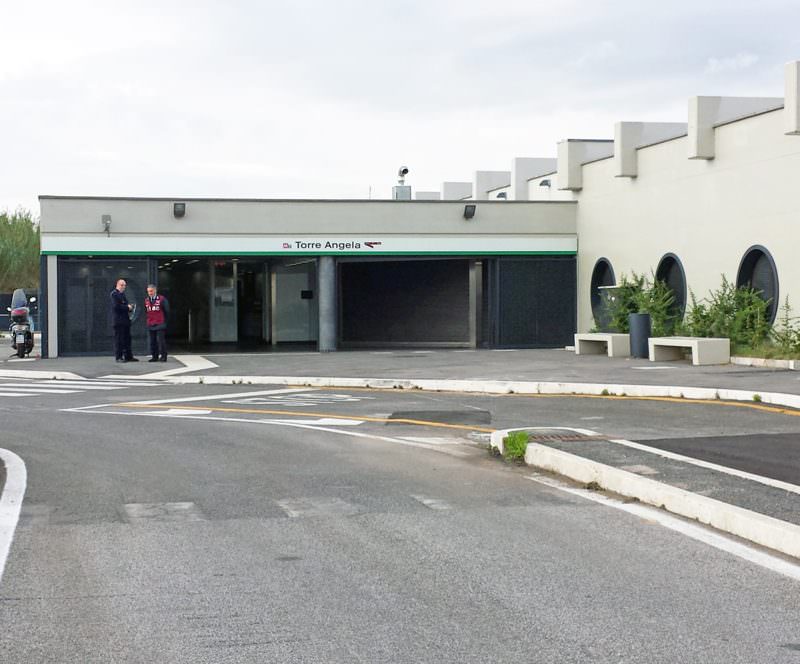
Torre Angela
22 Stations in operation
The 10 pre-existing stations of the Termini-Pantano railway have been modernized according to the technological and architectural standards of the new Line, adapting their functional and plant characteristics. The Torre Angela Station has been open to the public since November 9, 2014.
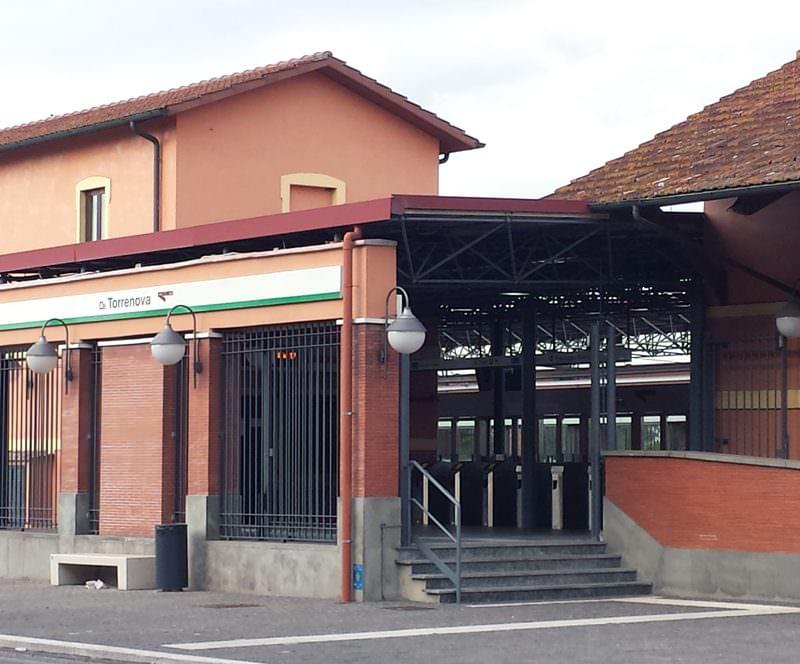
Torrenova
22 Stations in operation
The 10 pre-existing stations of the Termini-Pantano railway have been modernized according to the technological and architectural standards of the new Line, adapting their functional and plant characteristics. The Torrenova Station has been open to the public since November 9, 2014.
Giardinetti
22 Stations in operation
The Giardinetti Station, the only completely new surface station, is the point where the underground line meets the surface line. It is characterized by a trapezoidal shape with large windows and is equipped with a parking lot with over 200 car spaces. The station's atrium, at street level, is accessible from Via Casilina. The Giardinetti Station has been open to the public since November 9, 2014.
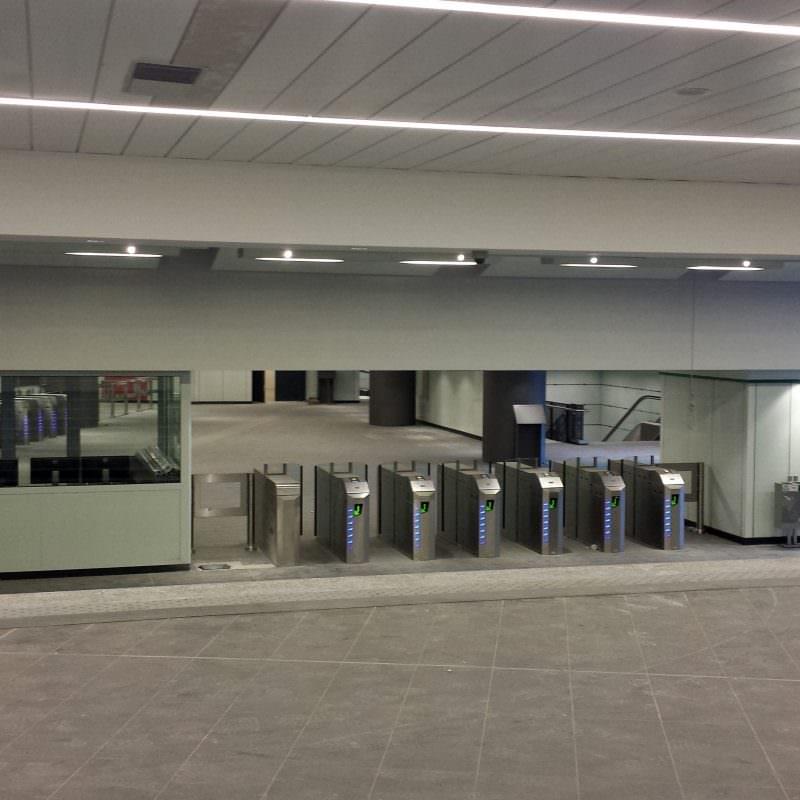
Torre Maura
22 Stations in operation
The Torre Maura Station is located at the confluence of Via Giglioli and Via Tobagi. It is accessible through three entrances, two along Via Casilina and one on Via Giglioli. The Torre Maura Station has been open to the public since November 9, 2014.
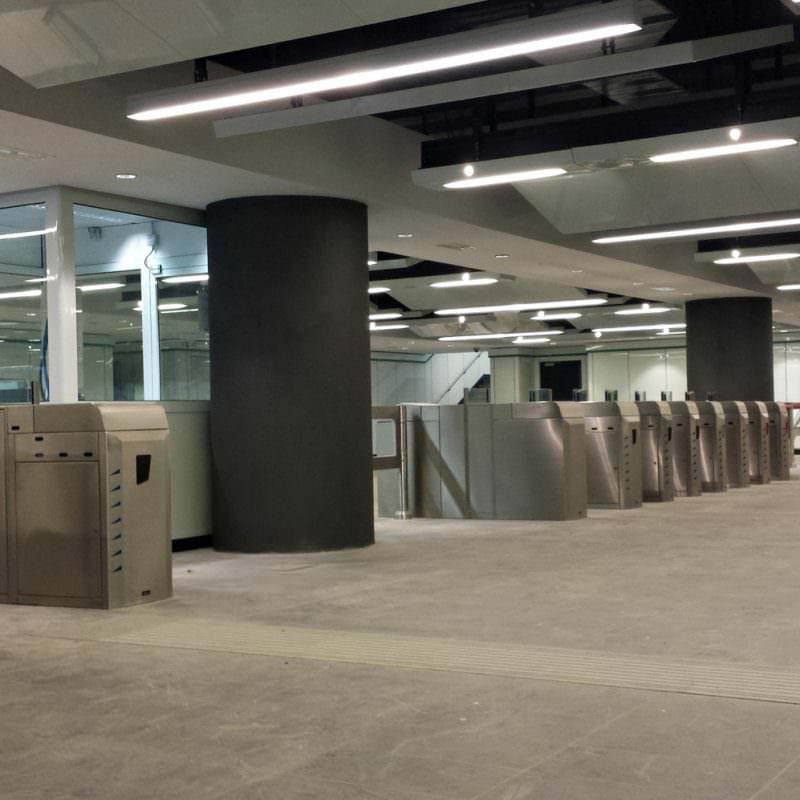
Torre Spaccata
22 Stations in operation
The Torre Spaccata Station is located between Via Tor Tre Teste and Via di Torre Spaccata, accessible from both sides of Via Casilina. The Torre Spaccata Station has been open to the public since November 9, 2014.
Alessandrino
22 Stations in operation
The Alessandrino Station is built under Via Casilina, between Piazza Sor Capanna and Viale Alessandrino, and is accessible from both the square and Via Casilina. The Alessandrino Station has been open to the public since November 9, 2014.
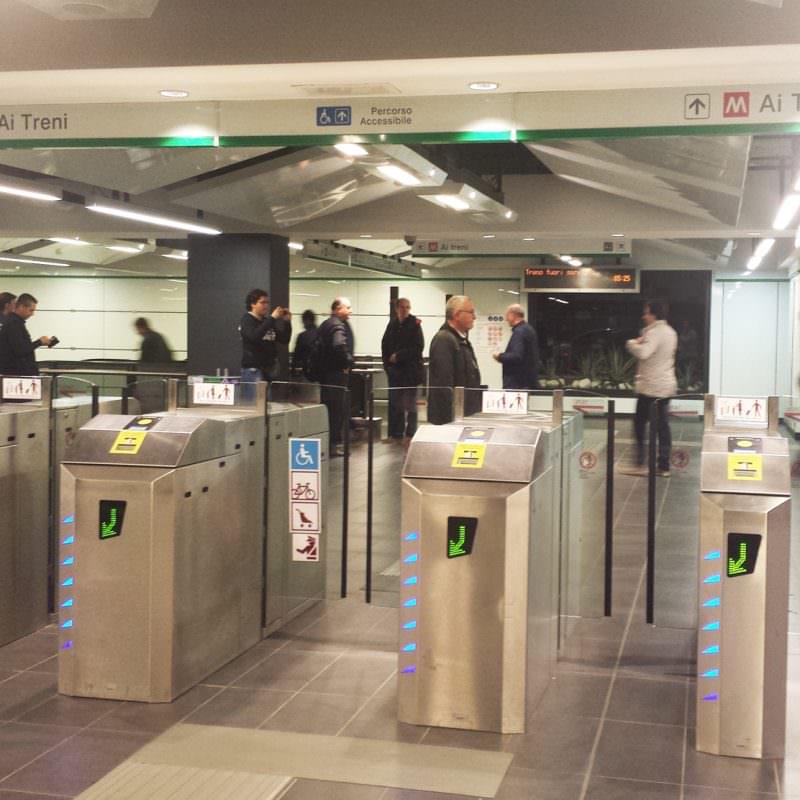
Parco di Centocelle
22 Stations in operation
The Centocelle Park Station, located between Via Casilina and Via Palmiro Togliatti, one of the major arterial roads of the Capital, is situated opposite the large Centocelle Urban Archaeological Park. The Centocelle Park Station has been open to the public since November 9, 2014.
Mirti
22 Stations in operation
The Mirti Station is built beneath the square of the same name, a symbol of one of the populated and lively neighborhoods of the Capital. The station is accessible through 4 entrances and 2 elevators. The square has been completely redeveloped. The Mirti Station has been open to the public since June 29, 2015.
Gardenie
22 Stations in operation
The Gardenie Station, located beneath the square of the same name, has three entrances, one across Viale della Primavera, connected by an underpass, and two on the north side of the square, which has been completely redeveloped. The Gardenie Station has been open to the public since June 29, 2015.
Teano
22 Stations in operation
The Teano Station, accessible from both Via Teano and Viale Partenope, is characterized by large spaces designated for commercial activities and a spacious atrium that can be used for events, exhibitions, and various initiatives. The Teano Station has been open to the public since June 29, 2015.
Discover moreMalatesta
22 Stations in operation
The Malatesta Station is built beneath the square of the same name, where bus terminals and stops are located. The new pedestrian square is characterized in the center by an open-air hypogeal space, accessible via a staircase that connects the outside with the station's intermediate atrium: a large space designated for commercial, cultural activities, and events, which gives back to the neighborhood a place for gathering and socializing. The Malatesta Station has been open to the public since June 29, 2015.
Discover morePigneto
22 Stations in operation
The Pigneto Station, constructed near the intersection of Via del Pigneto and Circonvallazione Casilina, will constitute an important interchange node with the soon-to-be-completed FL1 railway line. The area above the station has been completely redeveloped, with the creation of an equipped park and a sports field. The Pigneto Station has been open to the public since June 29, 2015.
Discover moreLodi
22 Stations in operation
The Lodi Station, the temporary terminus of the line, is situated beneath Via La Spezia (stretch between Via Orvieto and Via Foligno), a very important thoroughfare for the city. To adapt the presence of the subway to the historical and urban context in which it is located, the only elements visible on the surface are the steel and glass structures of the elevators and the station entrances. The Lodi Station has been open to the public since June 29, 2015.
San Giovanni
22 Stations in operation
The San Giovanni Station plays a fundamental role in the construction of Line C, especially because it represents the first interchange node with the existing Line A. The project underwent several evolutions following the results of archaeological investigations. The discovery of ancient structures to be preserved, up to a depth of about 18-20 meters from the ground level, led the Special Superintendence for the Archaeological Heritage of Rome to prescribe the impossibility of carrying out ground consolidations from the ground level, favoring open-air excavations with archaeological methods in the backfill soils, up to about 19 meters deep, excluding the realization of mechanized excavations for the construction of line tunnels in the section between San Giovanni Station and Amba Aradam/Ipponio Station.
Discover morePorta Metronia
Route under construction
The station is located midway between the Fori Imperiali Station (interchange Line C/Line B) and the San Giovanni Station (interchange Line C/Line A), specifically about 500 meters south of Piazza San Giovanni in Laterano and 300 meters from the entrances of the hospital of the same name.
Discover moreFori Imperiali/Colosseo
Route under construction
The Fori Imperiali Station is situated beneath the street of the same name, in the area between the Colosseum (Flavian Amphitheatre) and the area in front of the Basilica of Maxentius.
Discover moreVenezia
Route under construction
The Venezia Station is located beneath the square of the same name in a strategic position as it is situated at the junction connecting the Baroque center of Rome and the archaeological area of Via dei Fori Imperiali. One of the two exits is planned to be in front of Palazzo Venezia, near Via del Plebiscito. The second exit is expected to be at Piazza Madonna di Loreto.
Discover moreChiesa Nuova
Design in progress
The Chiesa Nuova Station is located beneath the square of the same name, near the Church of Santa Maria in Vallicella and the adjacent Oratorio dei Filippini, a complex of exceptional historical and artistic importance.
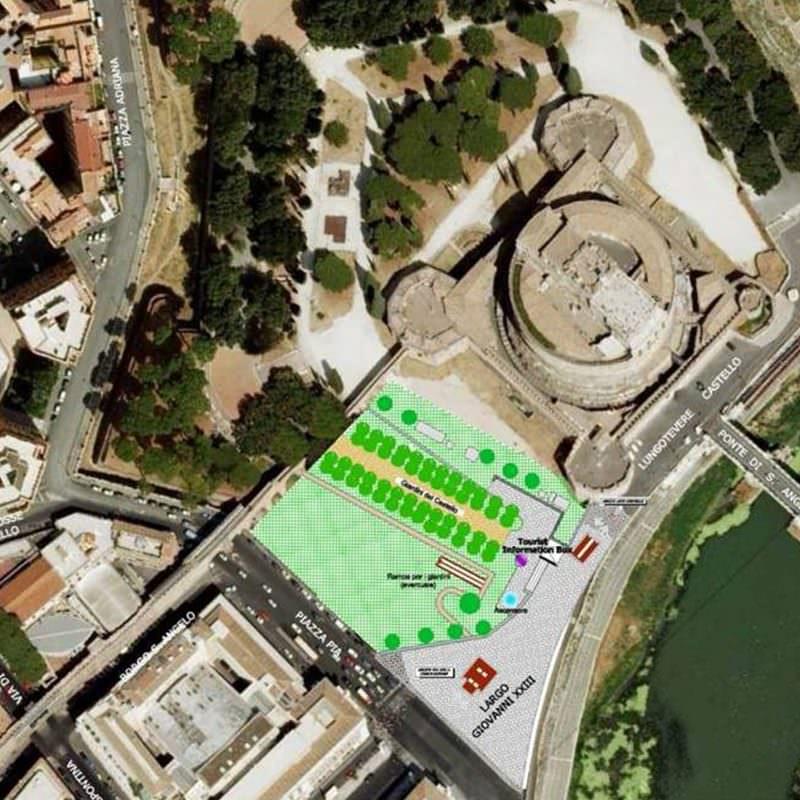
San Pietro
Design in progress
The San Pietro Station is located to the west of Castel Sant’Angelo, near Largo Giovanni XXIII/Piazza Pia and Lungotevere Vaticano.
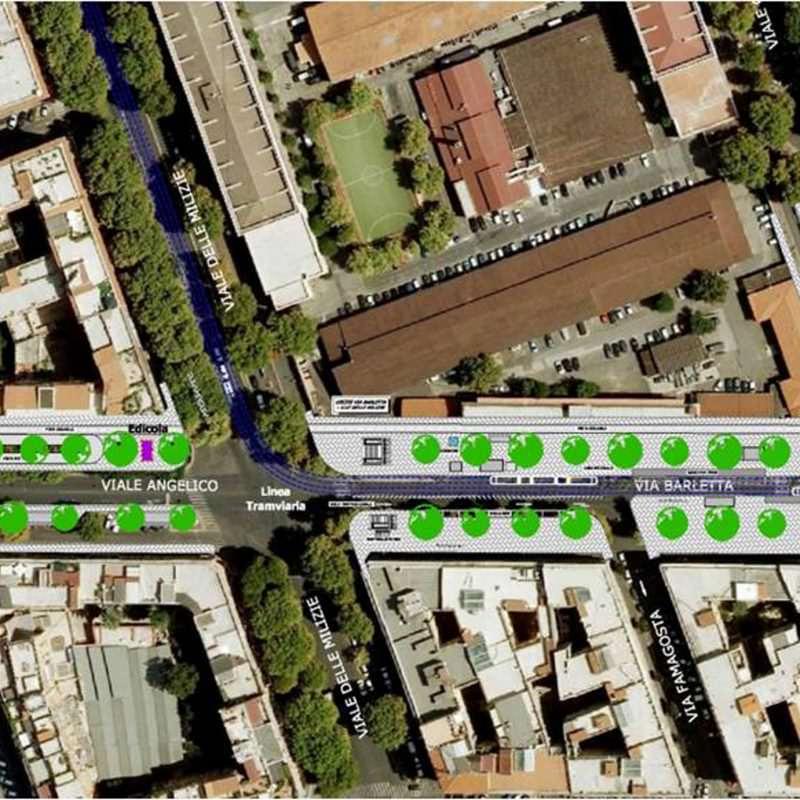
Ottaviano
Design in progress
The Ottaviano Station, characterized by its connection with Line A, is entirely underground and is located along the axis of Via Barletta, with the connecting structure to the Line A station situated on the side of Viale Giulio Cesare.
Clodio/Mazzini
Design in progress
The Clodio-Mazzini Station is located beneath Piazza Bainsizza, along the terminal part of Via Monte Santo, to optimize the flow of users from the Prati district.
Auditorium
Future developments
The Auditorium Station is situated in the open spaces surrounding the Palazzetto dello Sport between Viale Pierre de Coubertin and Viale Tiziano, currently landscaped and partially used as a parking area.
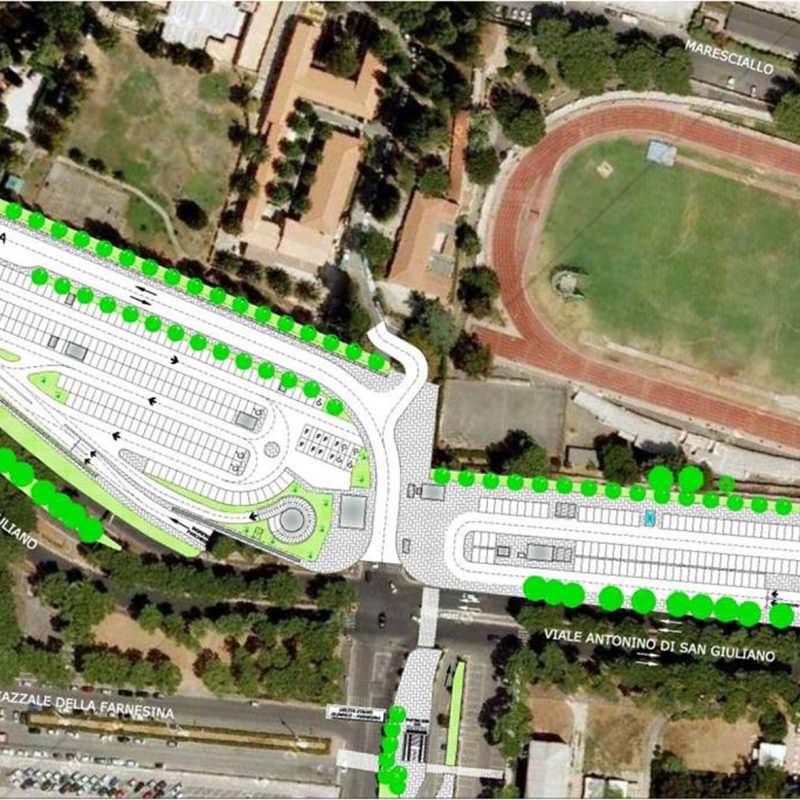
Farnesina
Future developments
The Farnesina Station, located beneath the surface of the "Farnesina" impound lot for towed vehicles, is characterized by its surroundings, which include significant facilities such as the Ministry of Foreign Affairs, the monumental complex of the Foro Italico, the stadium, public administration institutes, university residences, etc. Two entrances are planned, located respectively in front of the Ministry of Foreign Affairs and on Via Antonio da San Giuliano, near Ponte Milvio. For the terminal station of the route, an expansion of the existing parking areas is envisaged, with two large park-and-ride facilities.
The numbers of the route
Data from a unique engineering challenge
The Line C of the Rome Metro from Monte Compatri to Clodio-Mazzini builds a shared future: for the citizens of Rome who live and work there every day, for national and international tourists who want to experience the invaluable heritage of the Eternal City, and for the Institutions that have promoted and supported its realisation.
Live Construction Sites
Live webcams to follow the work 24/7
How it is built
From the choice and implementation of excavation techniques to the innovation of construction methods
Engineering at work sets new and higher implementation standards, giving importance to the safeguarding and enhancement of the historical and monumental heritage of the city of Rome.
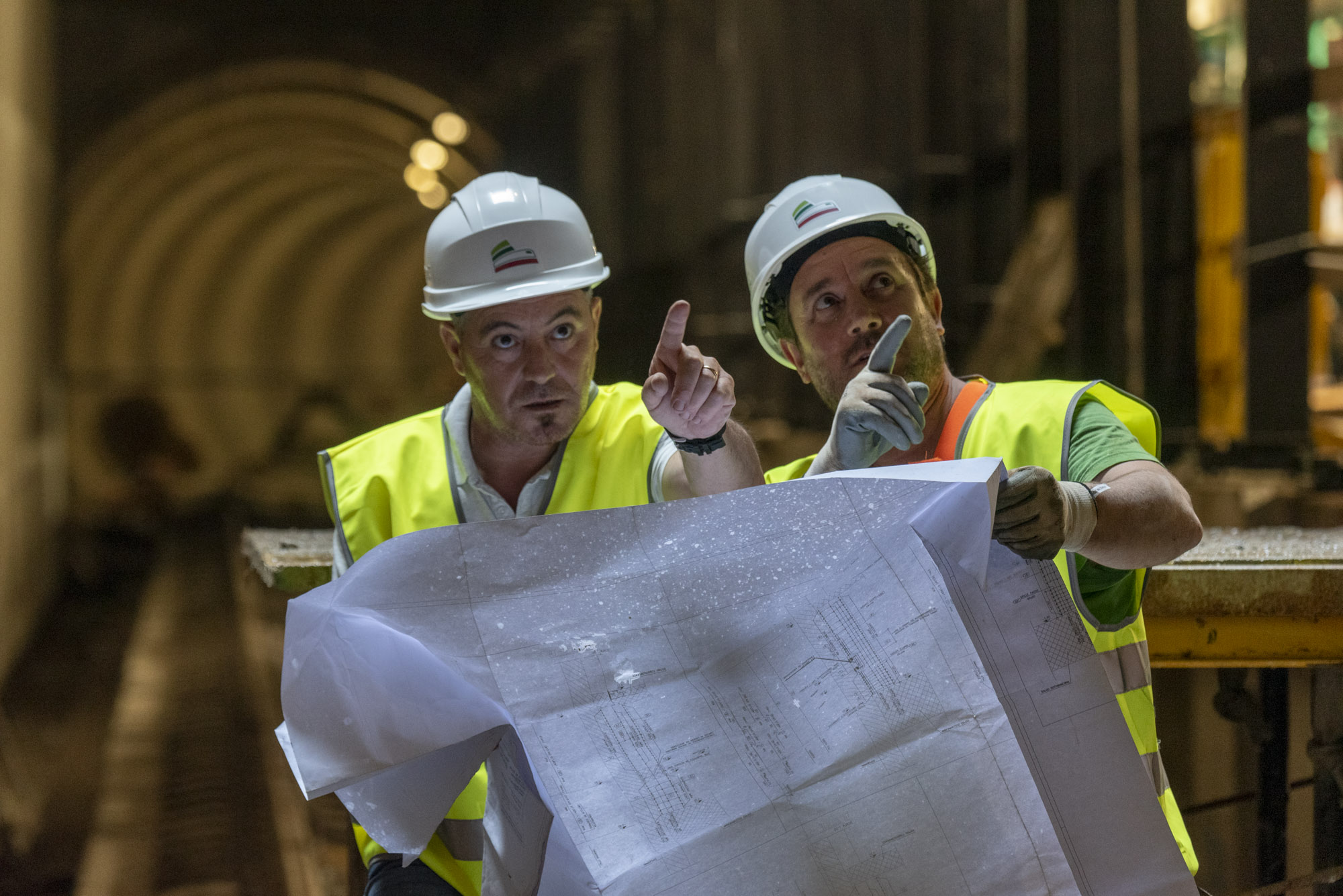
Historical Heritage
Preserve and enhance the archaeological wealth of Rome
Excavations are a unique opportunity to obtain information at still unexplored depths. Line C represents an international example of how the realisation of an infrastructure can become a tool for rediscovery and protection of history for the benefit of citizens.
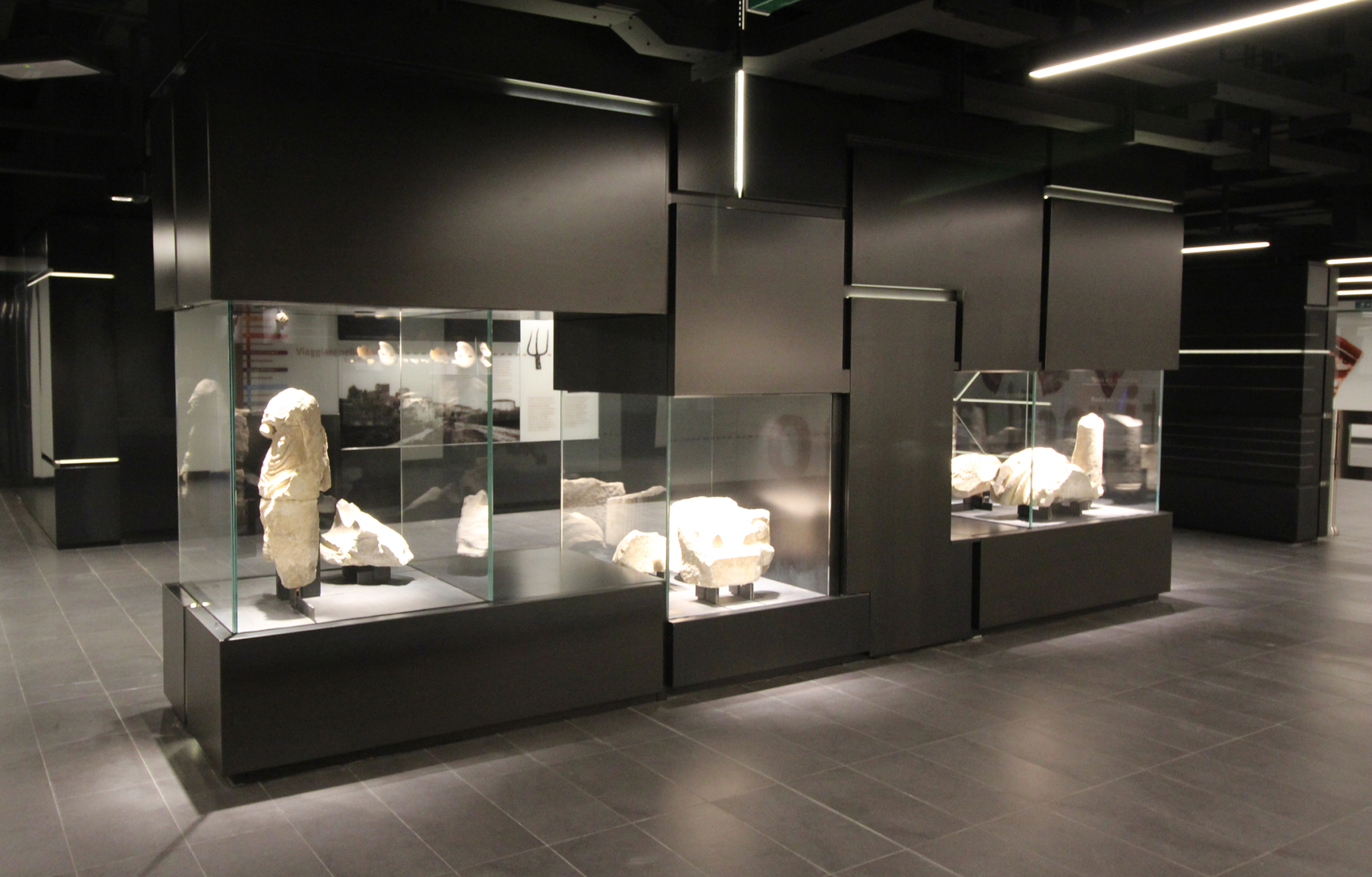
Safety
Prevent and Protect
The construction of a work comes to fruition through the knowledge and experiences of the people involved in it.For this reason, the safety of workers is a priority in the management and organisation of the construction sites.
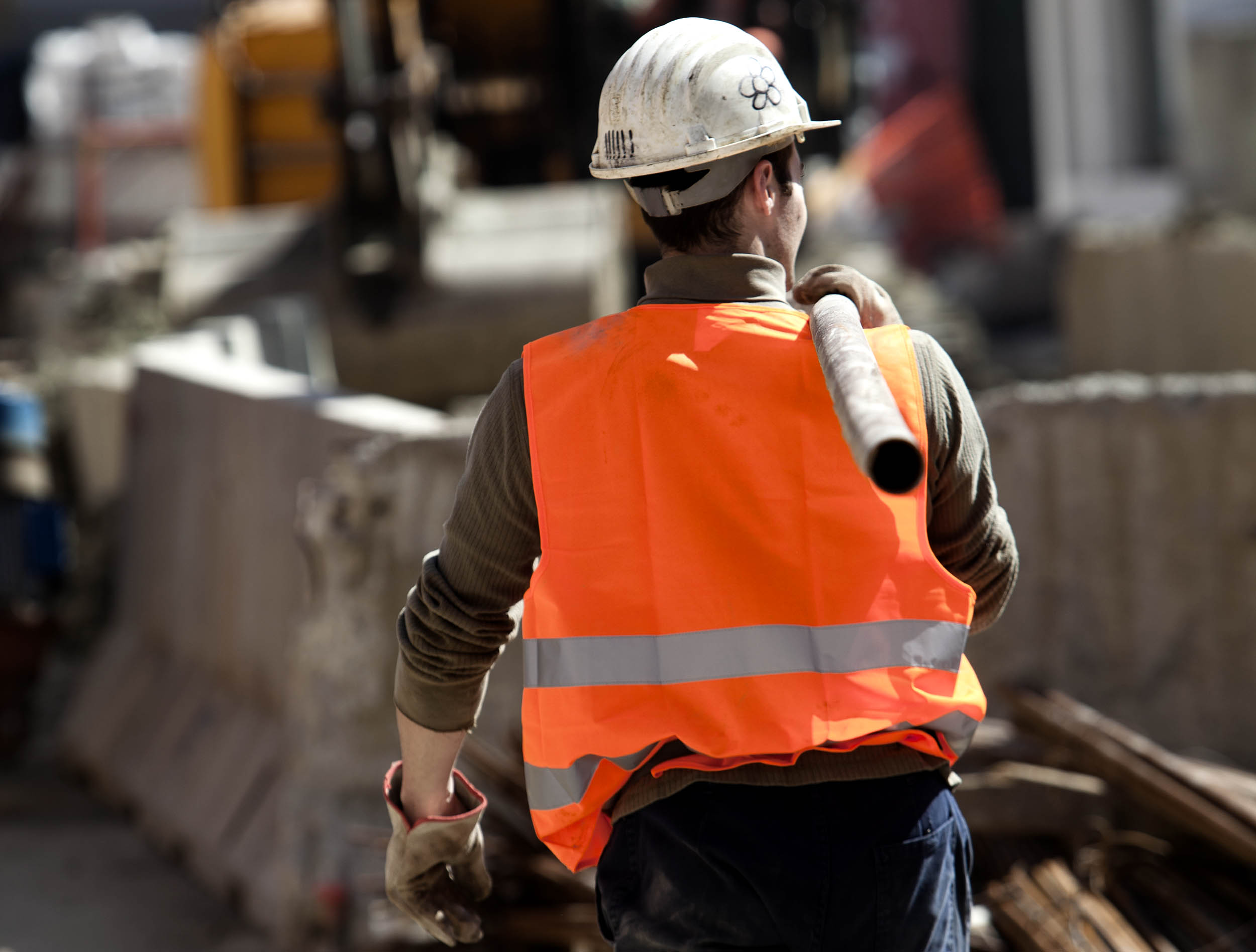 © Marco Merlini / Cgil
© Marco Merlini / Cgil


